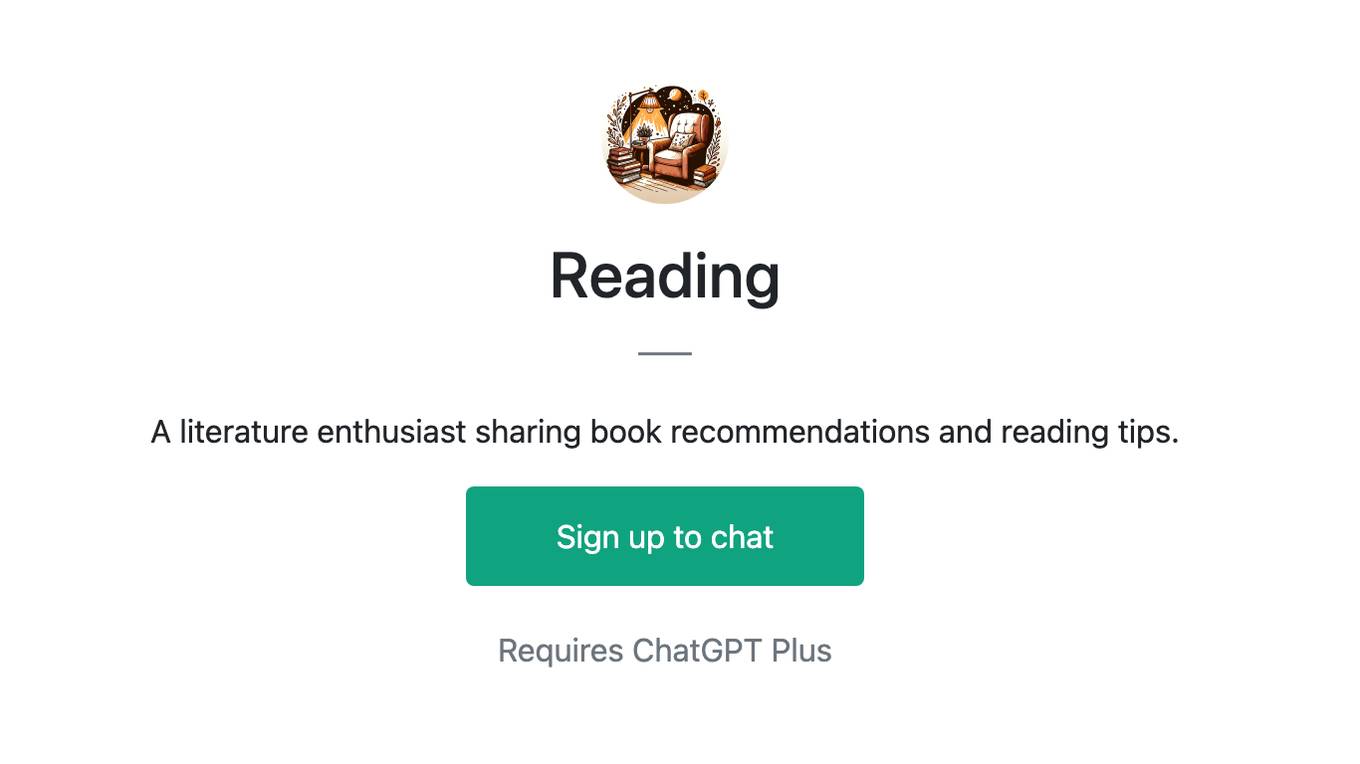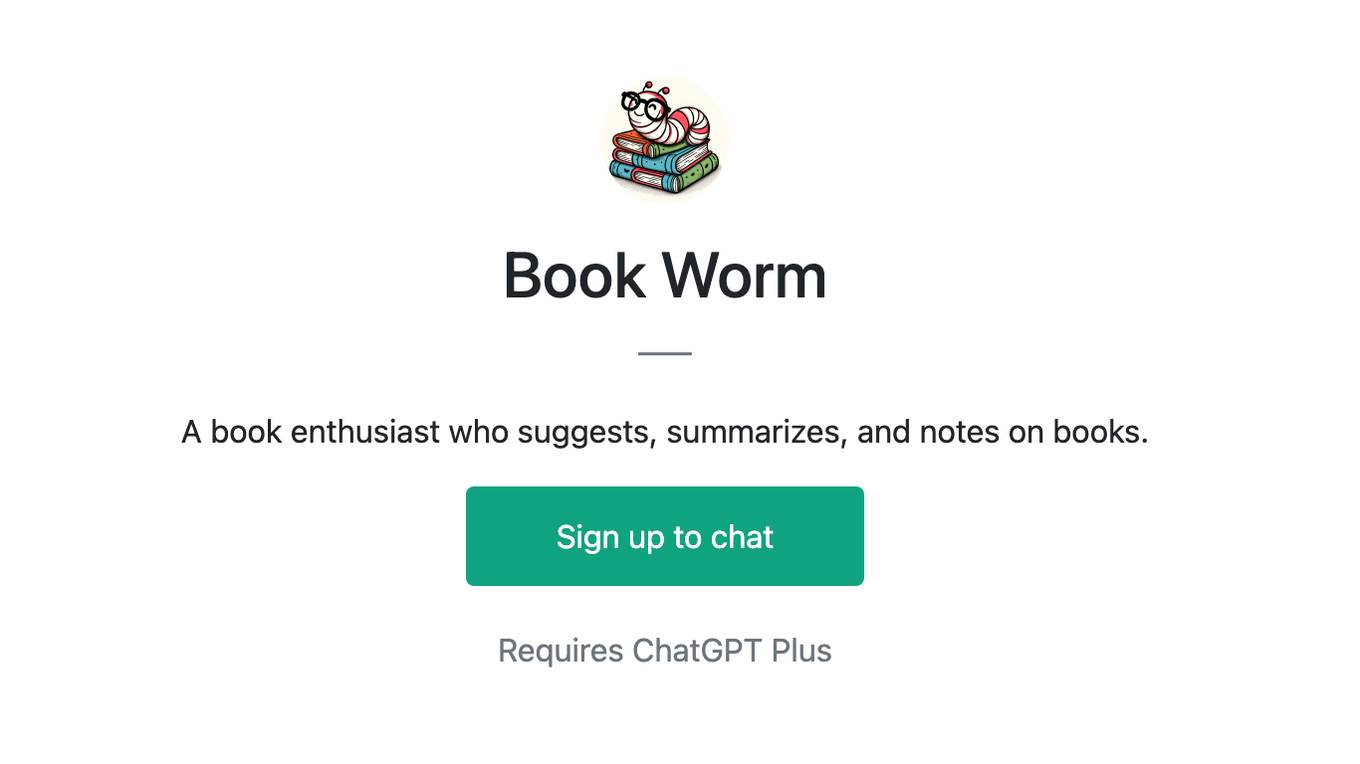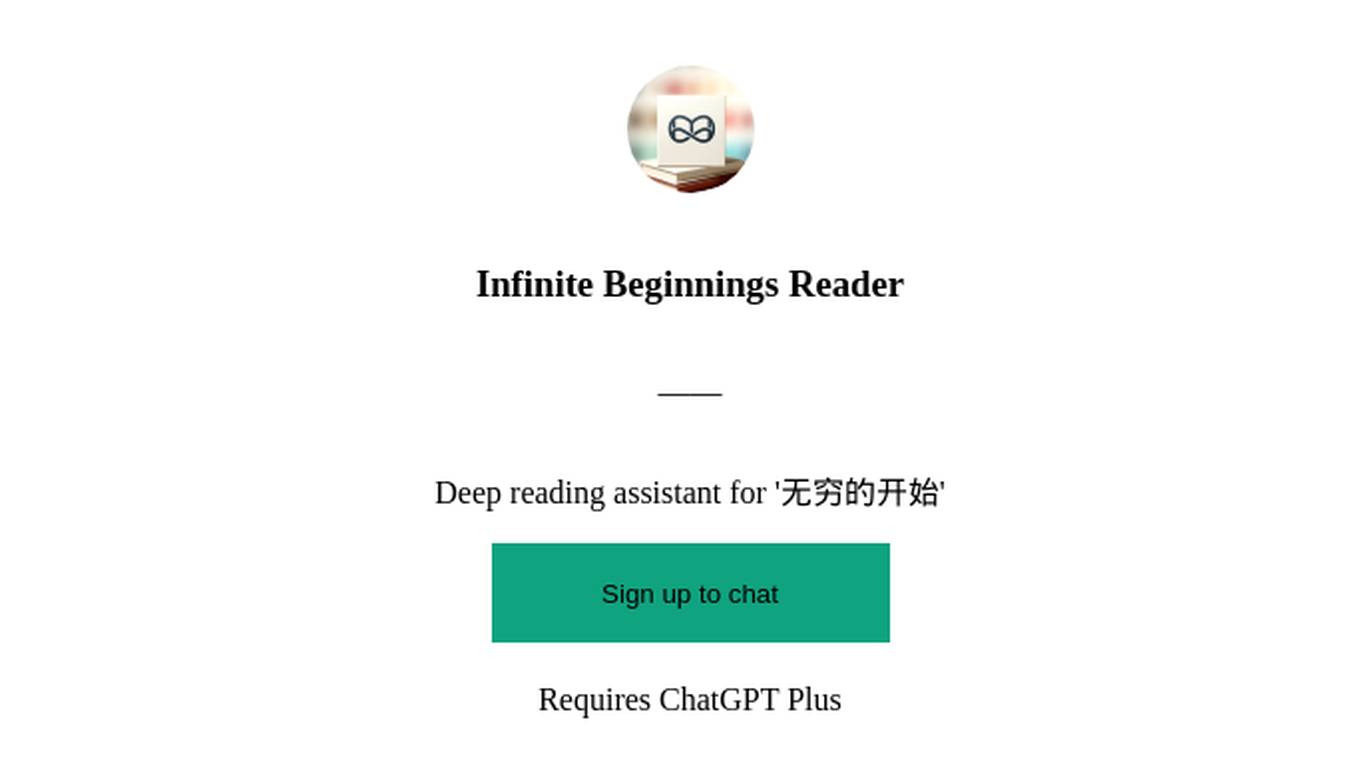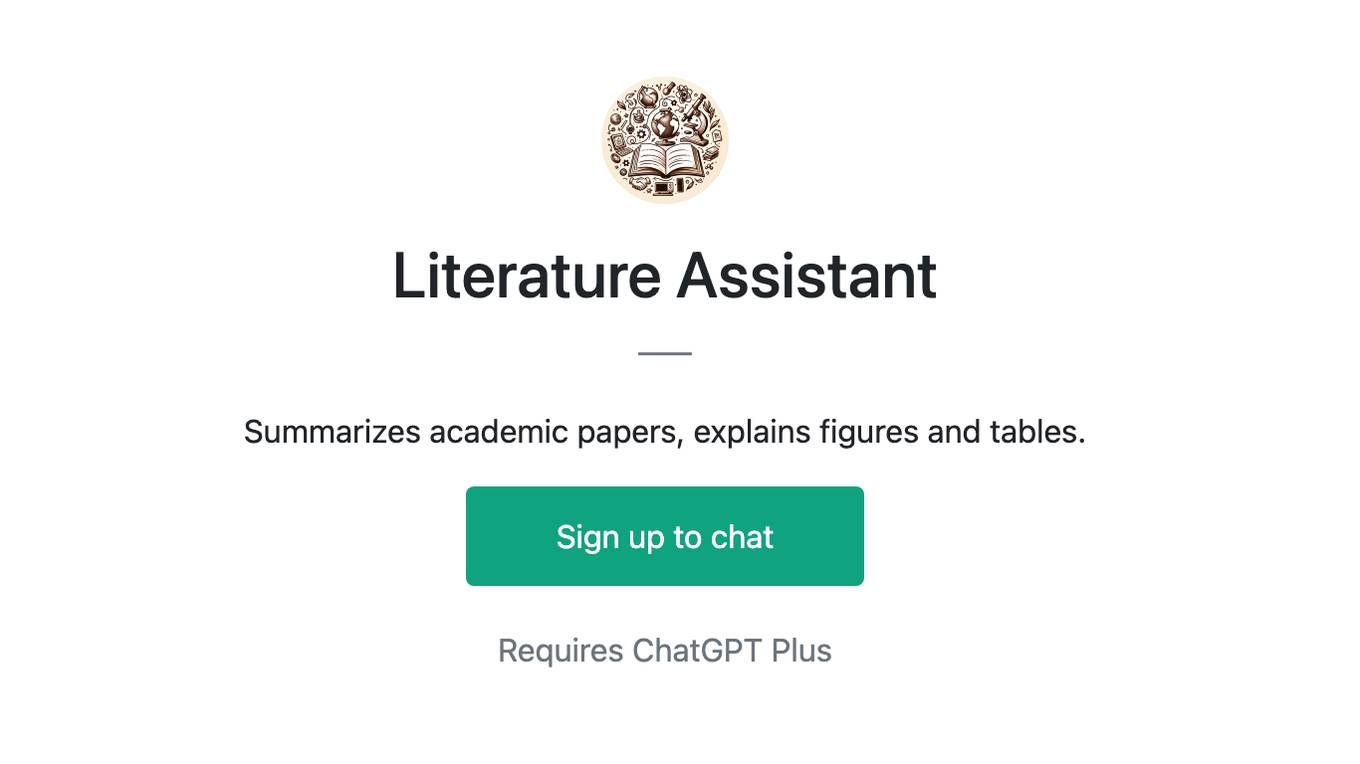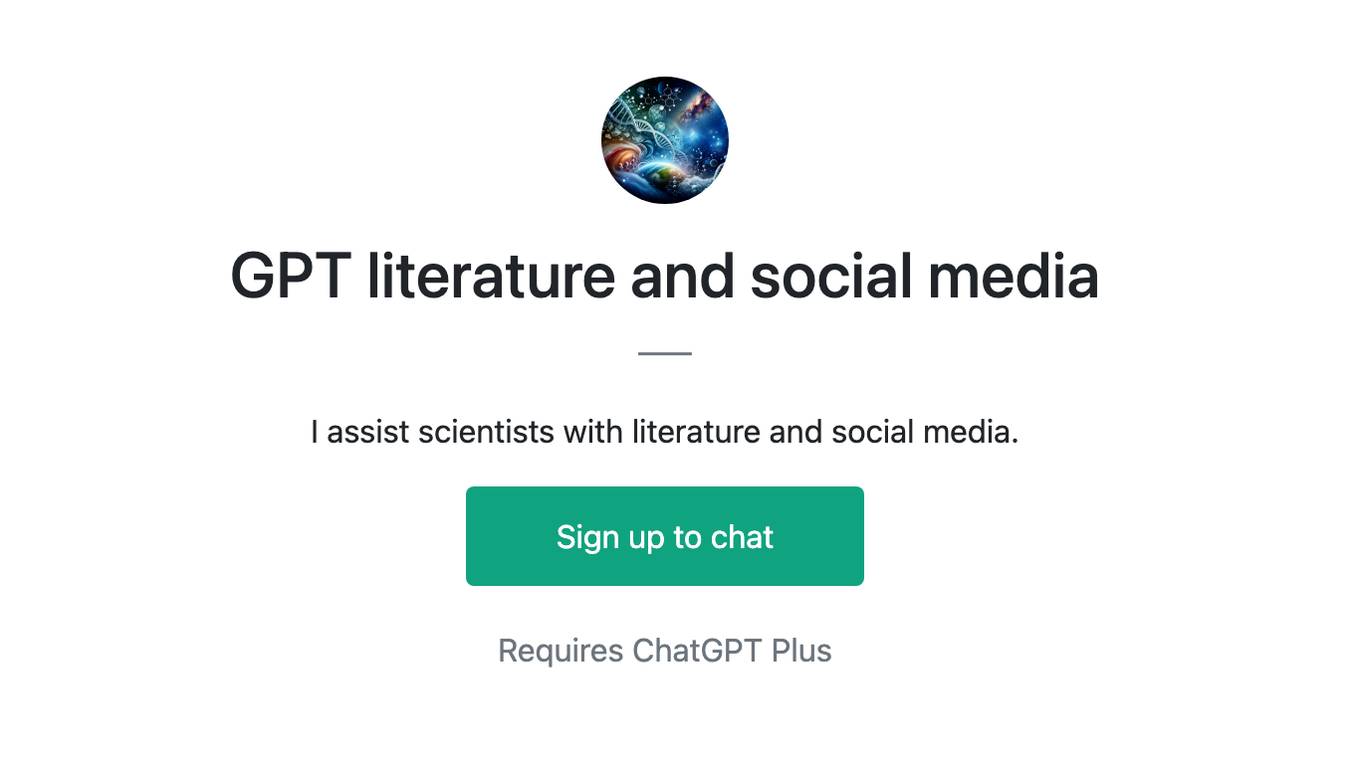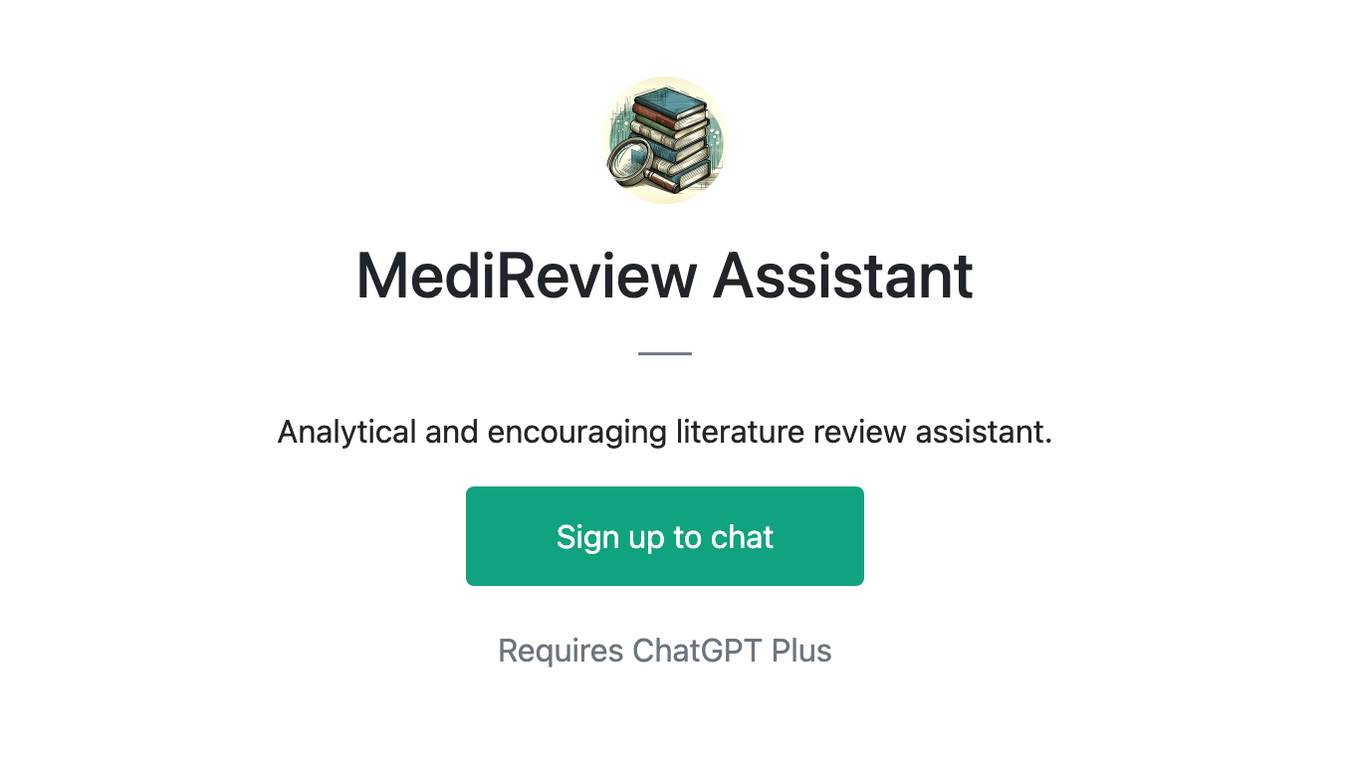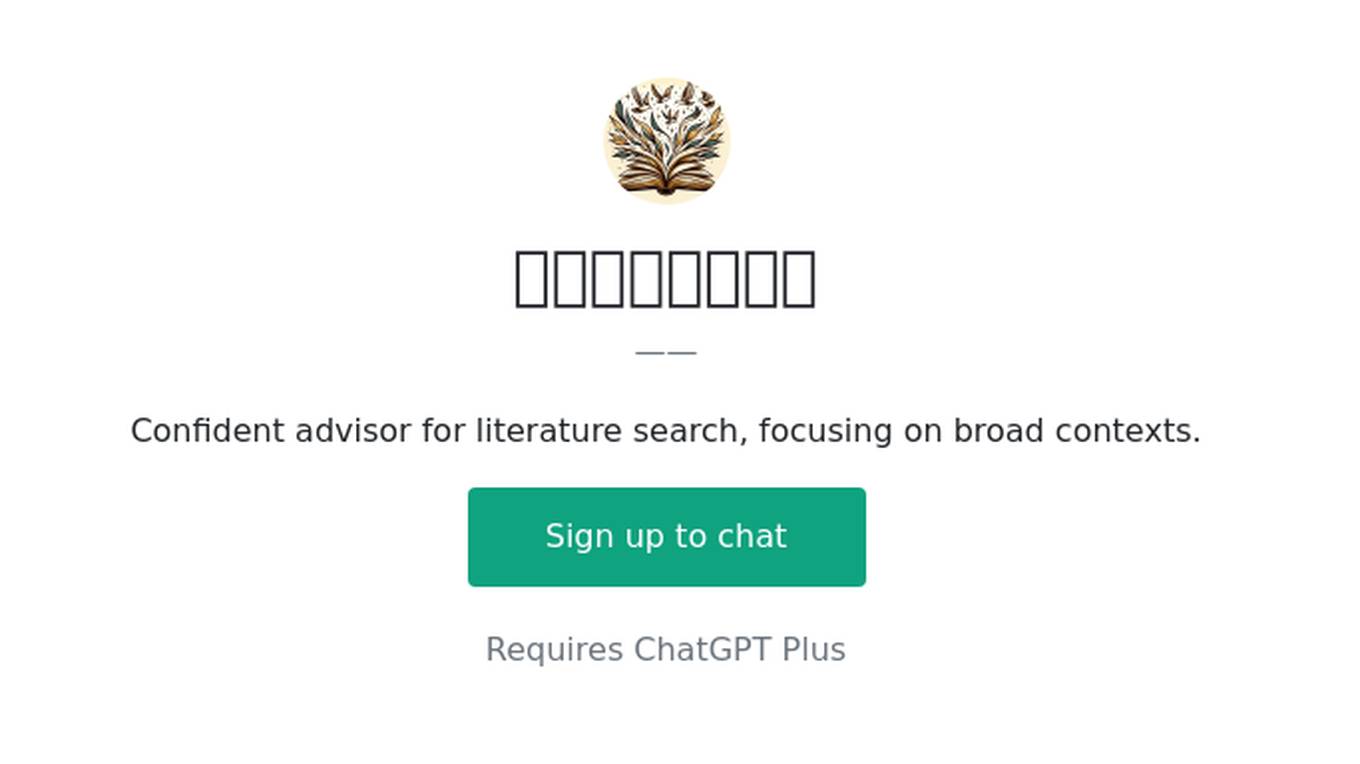Best AI tools for< Literature Enthusiast >
Infographic
20 - AI tool Sites
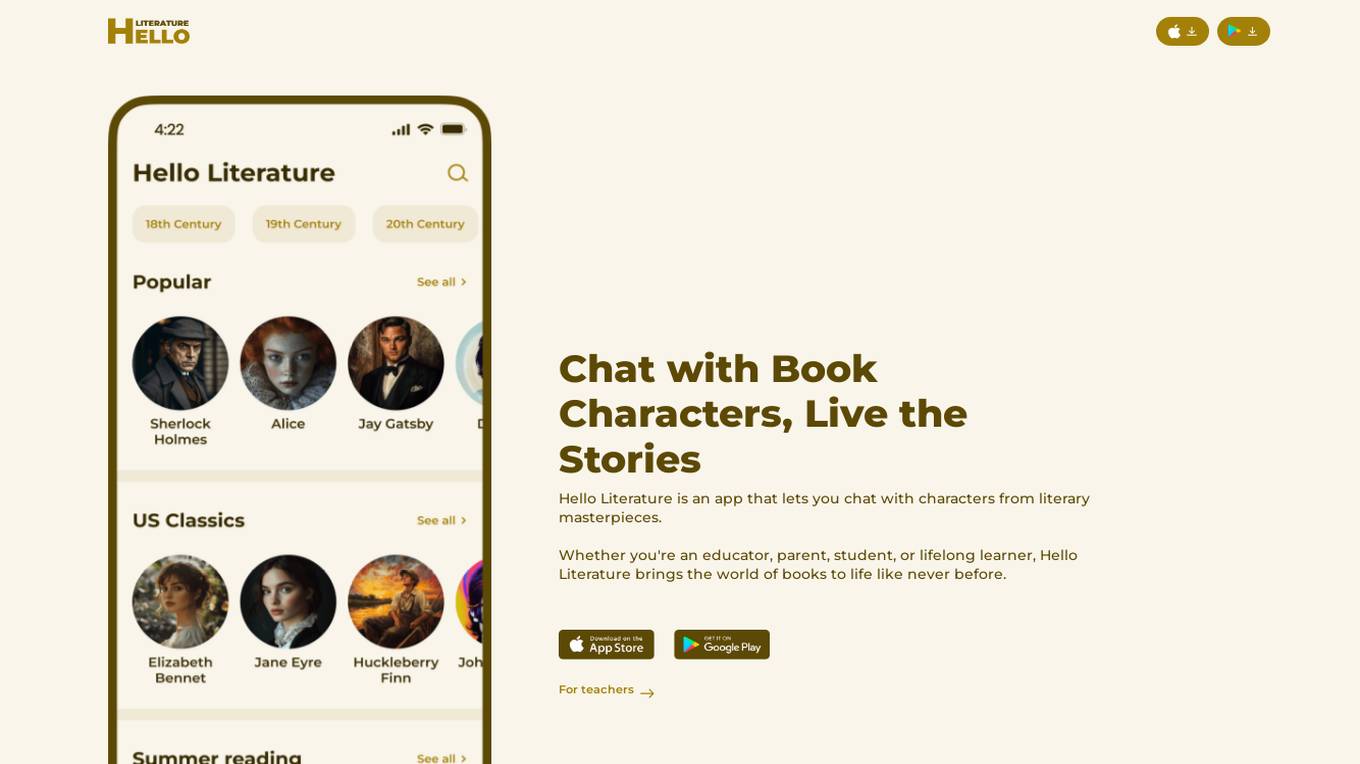
Hello Literature
Hello Literature is an AI-powered application that allows users to chat with characters from literary masterpieces. It caters to educators, parents, students, and lifelong learners, providing an immersive and interactive experience with fictional characters. The app supports project-based learning, enhances critical thinking, and fosters discussion to make literature classes more dynamic and engaging. With realistic voice generation, Hello Literature brings the world of books to life like never before, transforming screen time into educational time for children and offering a unique dimension of literature exploration for enthusiasts and learners.
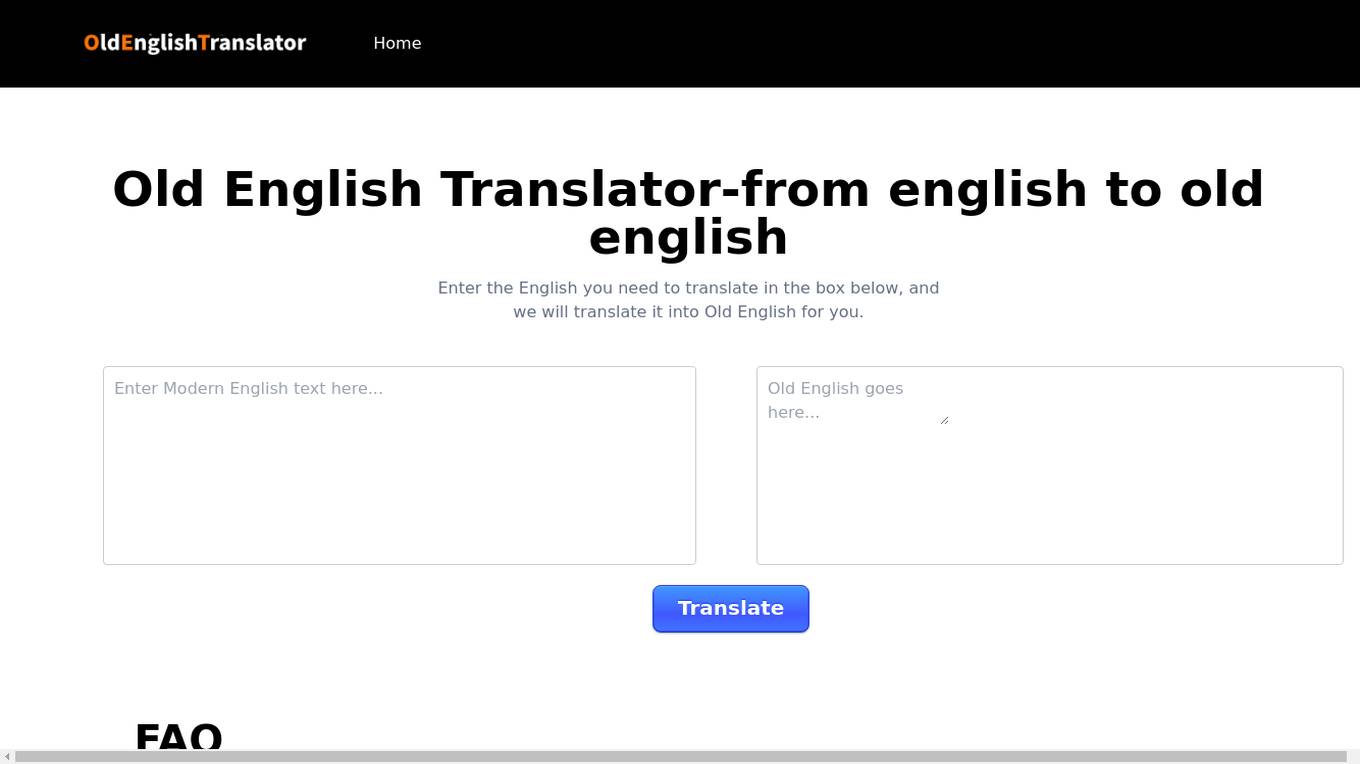
Old English Translator
Old English Translator is an AI tool designed to convert text from Old English, the earliest form of English spoken during the early Middle Ages, into Modern English. It helps users understand and interpret texts written in Old English, which is significantly different from the English language spoken today.

askmybook
Askmybook.com is an online platform that provides a wide range of services related to books and literature. Users can ask questions, seek recommendations, and engage in discussions about various literary works. The platform aims to connect book enthusiasts and foster a community of readers who share a passion for literature. With a user-friendly interface, askmybook.com offers a seamless experience for users to explore, discover, and interact with like-minded individuals in the virtual book world.
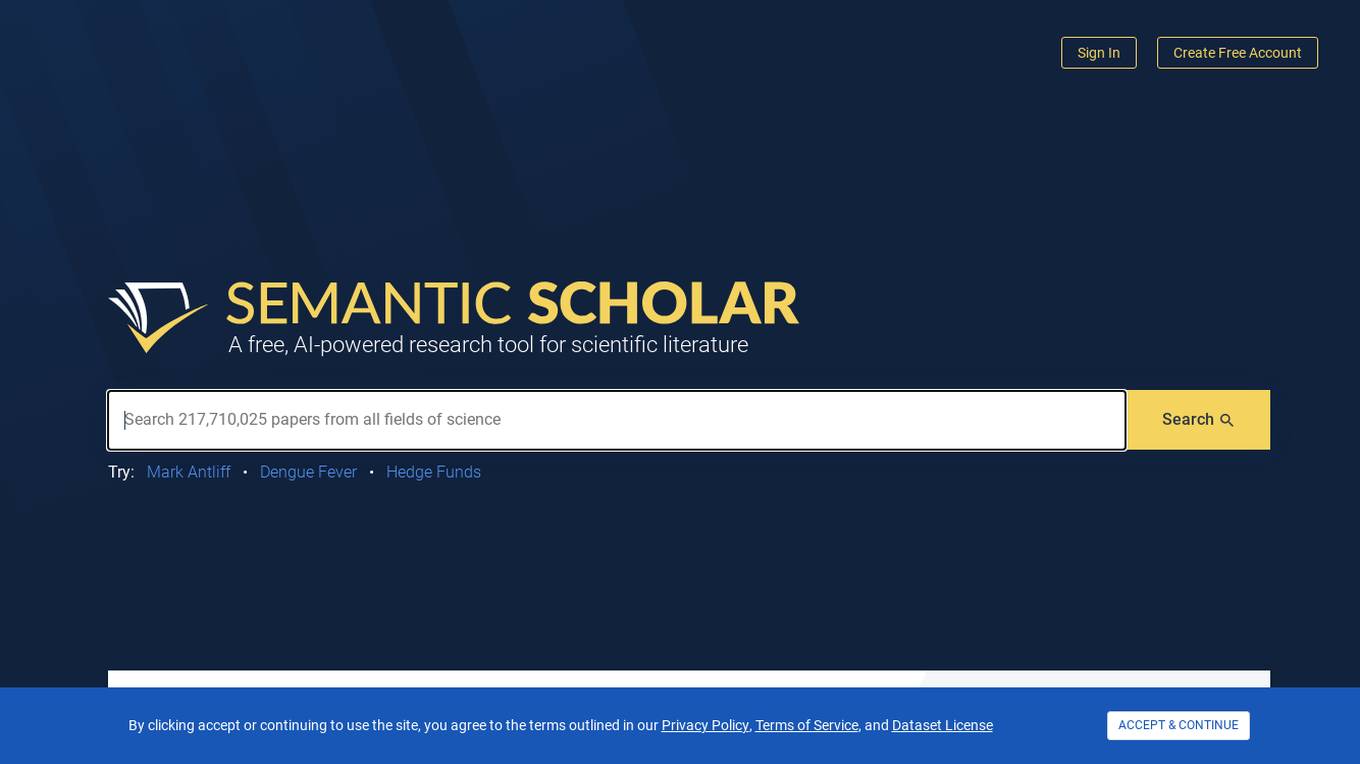
Semantic Scholar
Semantic Scholar is a free, AI-powered research tool for scientific literature. It is based at the Allen Institute for AI and provides access to over 217 million papers from all fields of science. Semantic Scholar uses AI to help users discover and explore scientific literature, and to stay up-to-date on the latest research. The tool also includes a number of features to help users manage their research, such as the ability to save papers, create bibliographies, and share research with others.
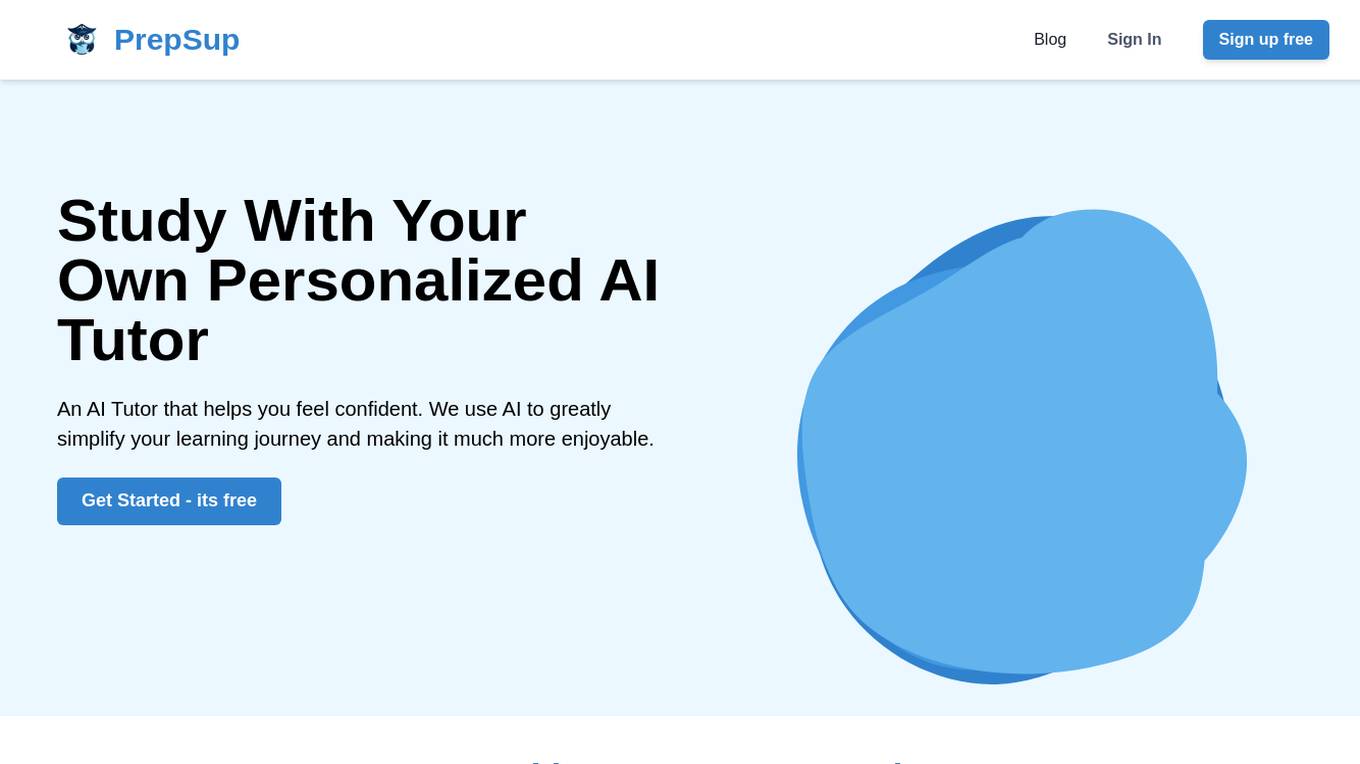
PrepSup
PrepSup is an AI-powered platform that offers a combination of powerful flashcards, AI tutoring, and PDF analysis tools. It provides a comprehensive solution for students and professionals to enhance their learning experience, improve retention, and analyze PDF documents efficiently. With PrepSup, users can create interactive flashcards, receive personalized tutoring based on AI algorithms, and analyze PDF files for key information. The platform aims to streamline the learning process and make studying more effective and engaging.
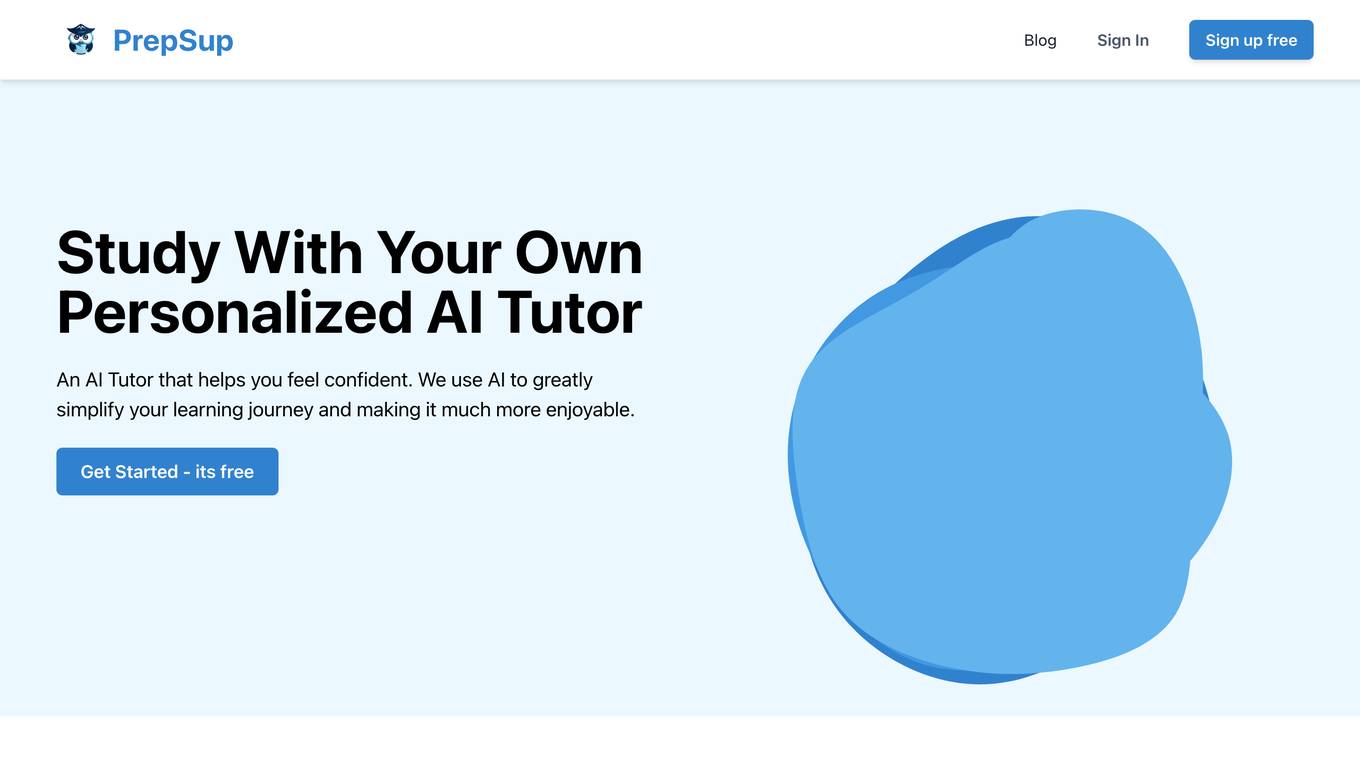
PrepSup
PrepSup is a powerful AI-powered learning platform that provides students with personalized study materials, an AI tutor, and a PDF analyzer to help them excel in their studies. With PrepSup, students can create and share flashcards, access a vast library of pre-made flashcards, and get instant feedback on their progress. The AI tutor provides personalized recommendations and guidance, helping students identify areas for improvement and develop effective study strategies. The PDF analyzer extracts key concepts and insights from PDFs, making it easier for students to understand and retain information. Whether you're preparing for a test, writing a paper, or simply trying to learn a new subject, PrepSup is the perfect tool to help you succeed.
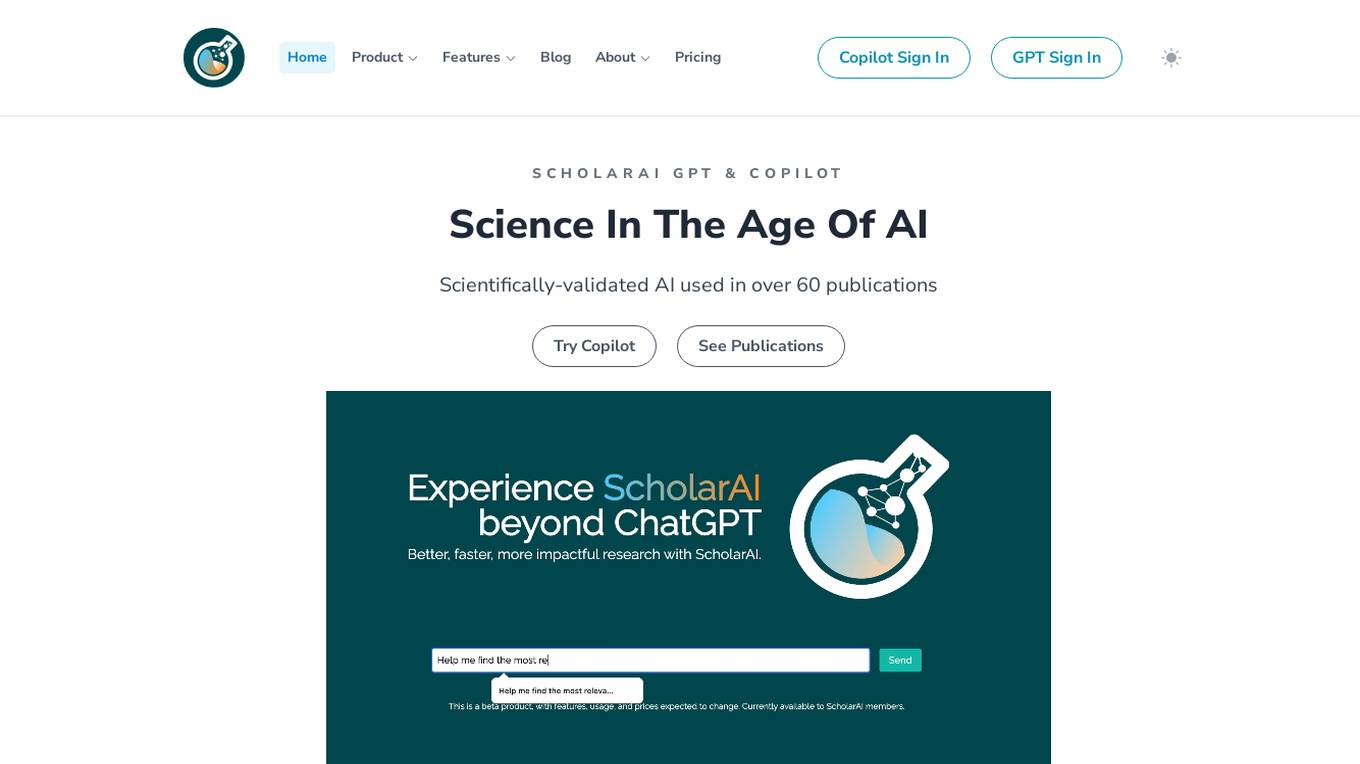
ScholarAI
ScholarAI is an AI-powered scientific research tool that offers a wide range of features to help users navigate and extract insights from scientific literature. With access to over 200 million peer-reviewed articles, ScholarAI allows users to conduct abstract searches, literature mapping, PDF reading, literature reviews, gap analysis, direct Q&A, table and figure extraction, citation management, and project management. The tool is designed to accelerate the research process and provide tailored scientific insights to users.
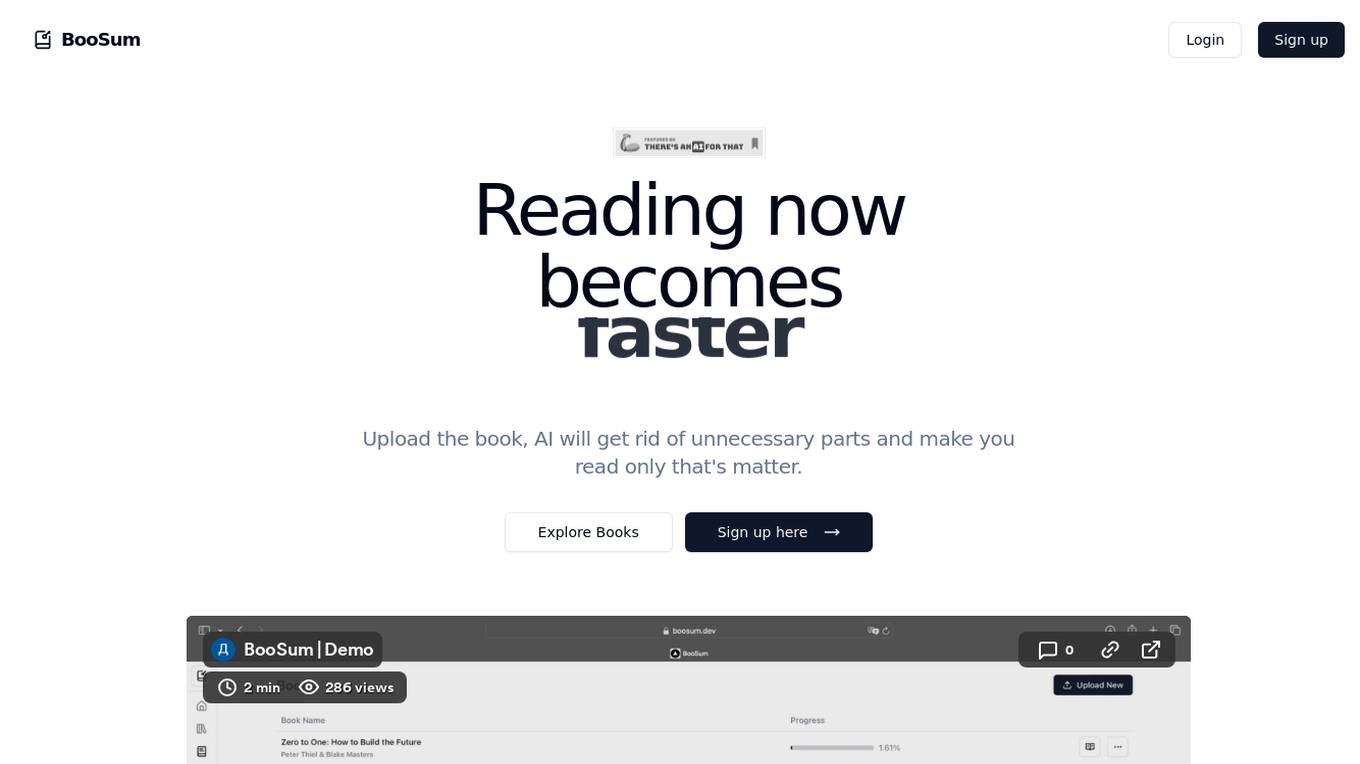
BooSum
BooSum is an AI-powered book summary application that helps users read smarter by eliminating unnecessary parts of books and focusing on the key content. Users can upload books and let the AI do the work of summarizing them, making reading faster, deeper, and easier. The platform offers a curated selection of top-rated books across various genres, allowing users to expand their knowledge and imagination. With features like reducing redundant information, improving information understanding through AI, and supporting multiple languages, BooSum aims to make reading accessible and useful for everyone.
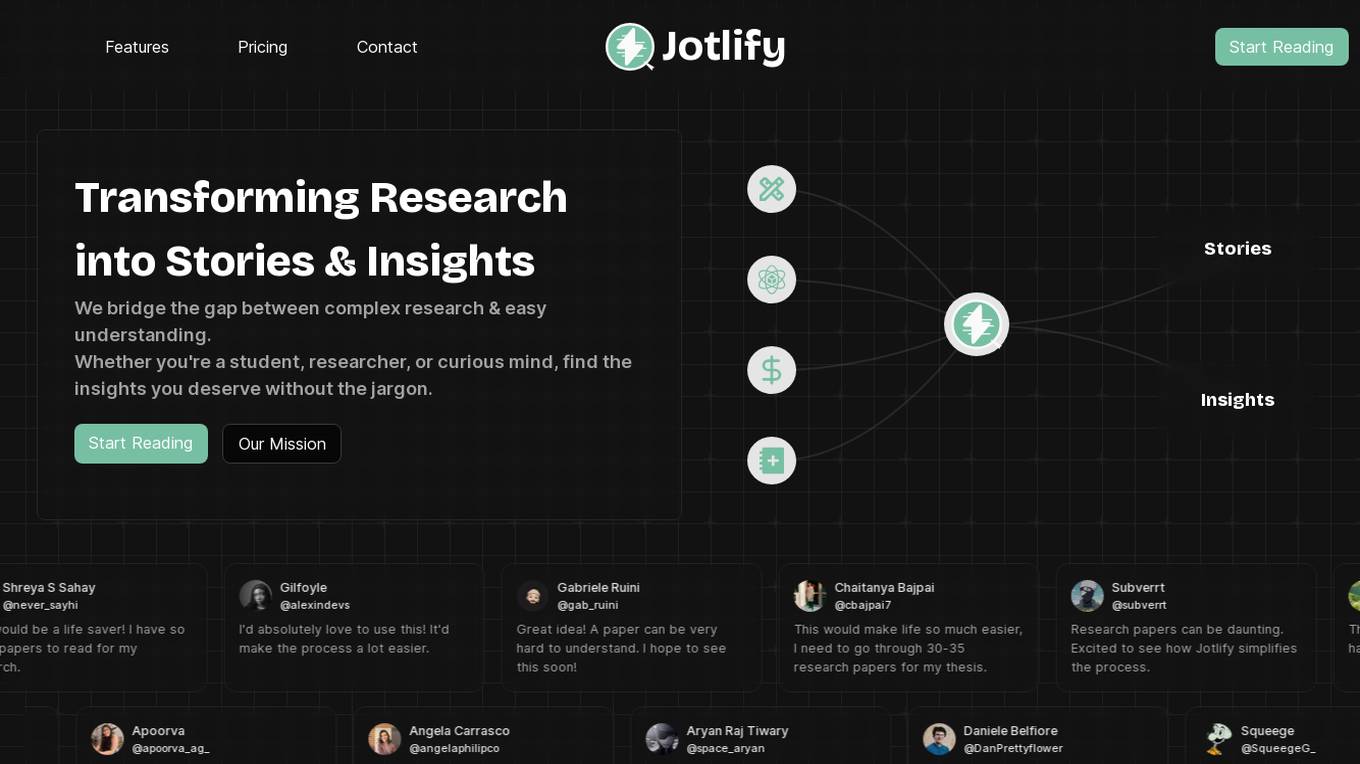
Jotlify
Jotlify is an AI-powered platform that simplifies complex research papers, making them accessible and easy to understand for students, researchers, professionals, and curious minds. It transforms dense academic content into engaging stories and insights, bridging the gap between complex research and easy understanding. With Jotlify, users can uncover stories and insights that can transform their understanding and impact various aspects of their lives.
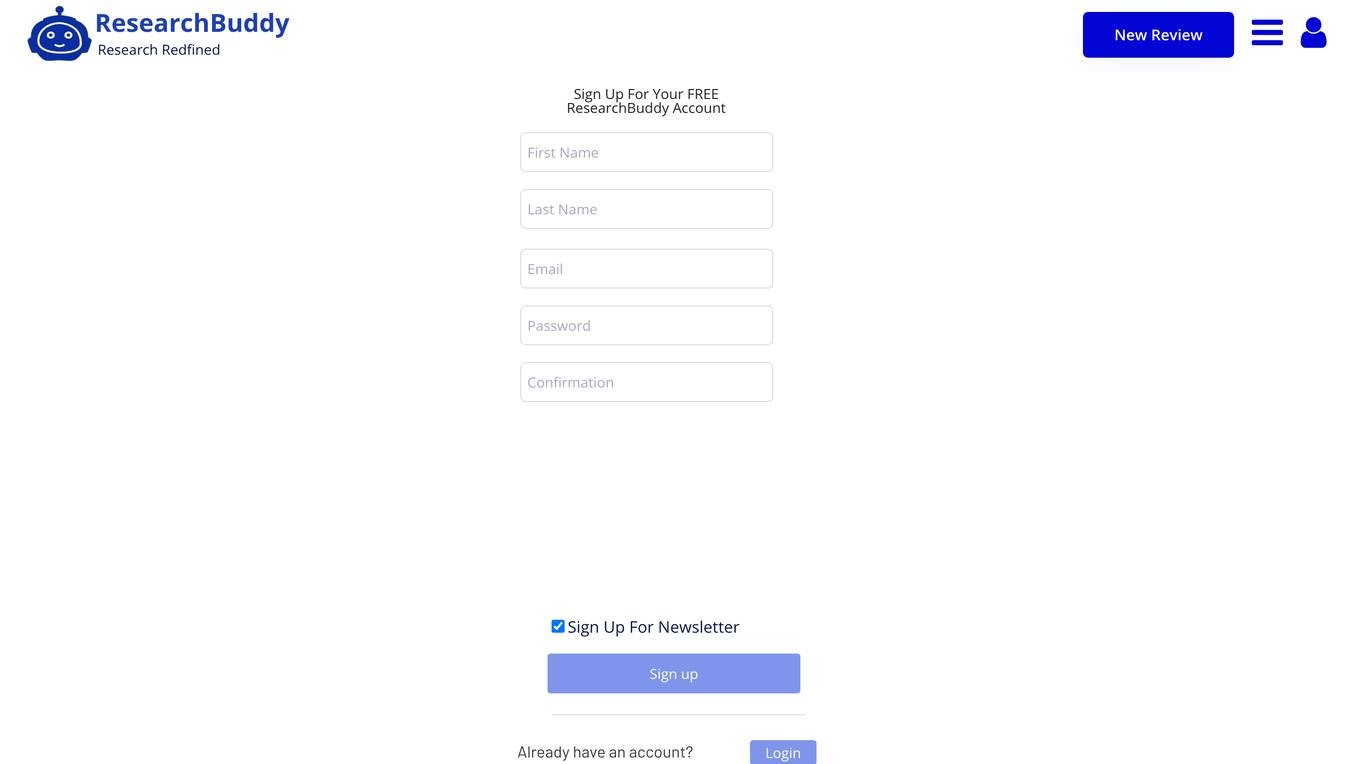
ResearchBuddy
ResearchBuddy is an AI tool designed to automate the process of conducting literature reviews. It helps researchers and students efficiently gather and analyze information from various sources to enhance their research projects. By leveraging artificial intelligence, ResearchBuddy streamlines the review process, saving users time and effort. The platform offers a user-friendly interface and advanced algorithms to deliver accurate and relevant results. With ResearchBuddy, users can access a comprehensive database of scholarly articles and publications, making it easier to stay up-to-date with the latest research trends and findings.
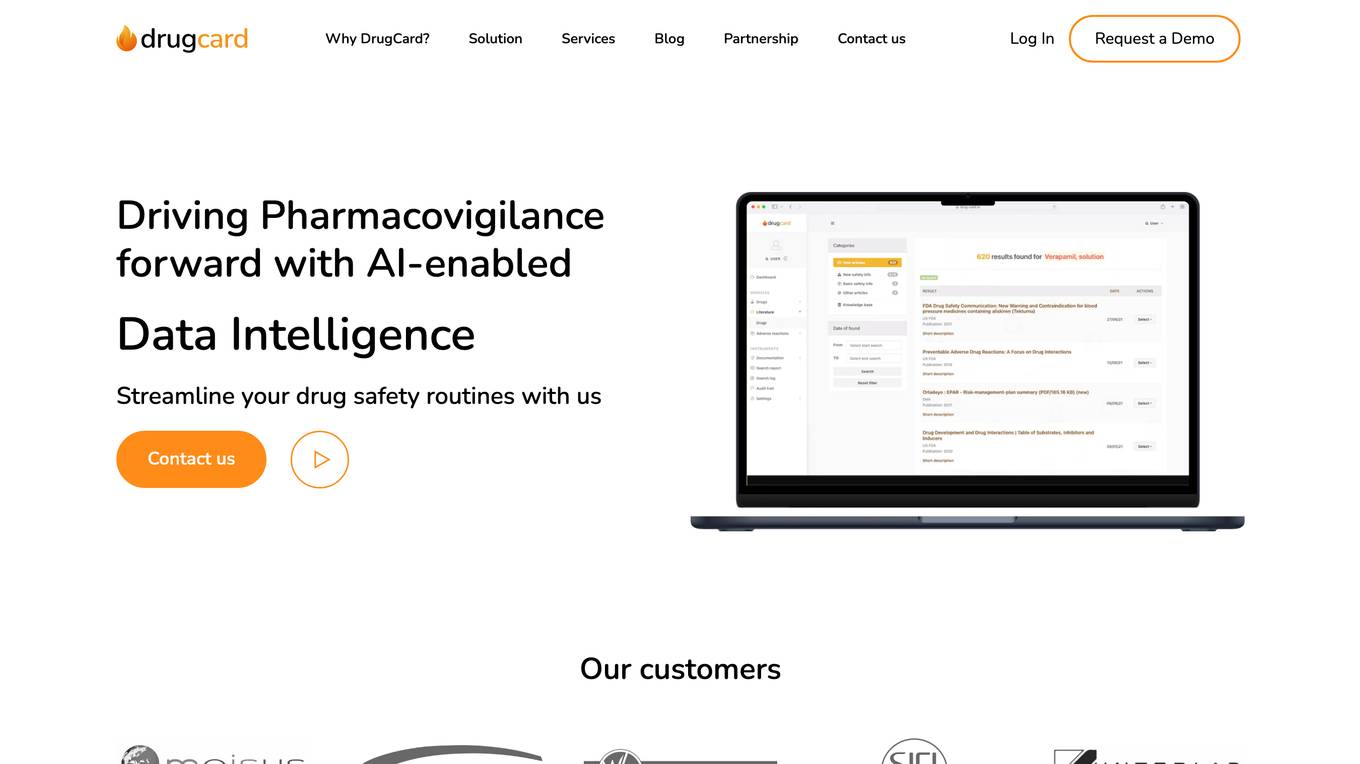
DrugCard
DrugCard is a comprehensive literature screening and pharmacovigilance solution that offers AI-driven automated pharmacovigilance services. The platform helps streamline drug safety routines by providing continuous and regular monitoring, traceable and transparent data, accurate and complete information, and scalability to new markets. DrugCard supports over 100 languages, covers 112+ countries, and monitors 2200+ local medical journals, resulting in a 60% time savings compared to manual approaches. The platform is designed for Contract Research Organizations (CROs), Marketing Authorization Holders (MAHs), and freelancers in the pharmaceutical industry.
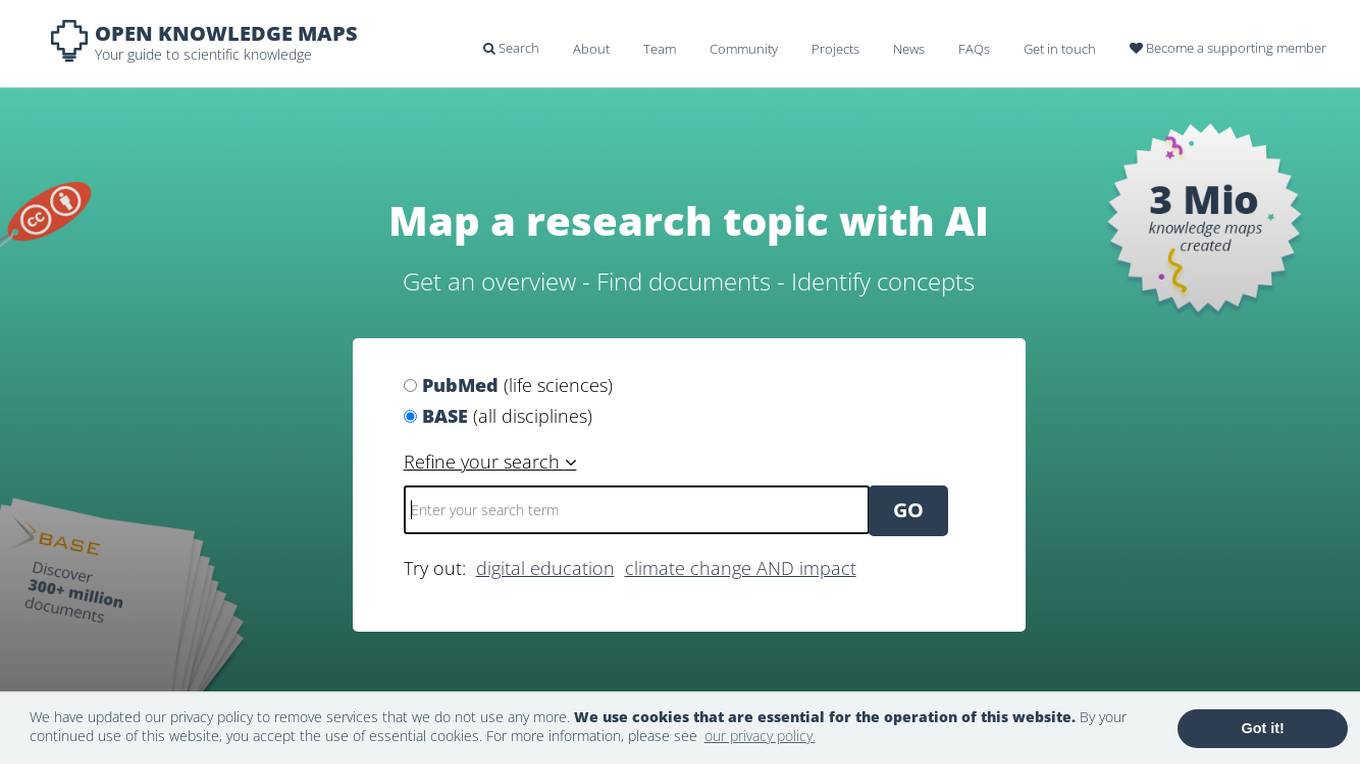
Open Knowledge Maps
Open Knowledge Maps is the world's largest AI-based search engine for scientific knowledge. It aims to revolutionize discovery by increasing the visibility of research findings for science and society. The platform is open and nonprofit, based on the principles of open science, with a mission to create an inclusive, sustainable, and equitable infrastructure for all users. Users can map research topics with AI, find documents, and identify concepts to enhance their literature search experience.

AI Medium Reader
The website is an AI tool that offers access to various AI models like GPT-4o, Claude3 Opus, and Gemini Pro in one application. Users can read Medium articles with AI assistance and enhance their user experience. By clicking 'Agree', users consent to the use of cookies for improved functionality. The platform provides a seamless experience for users to explore content with the help of AI technologies.
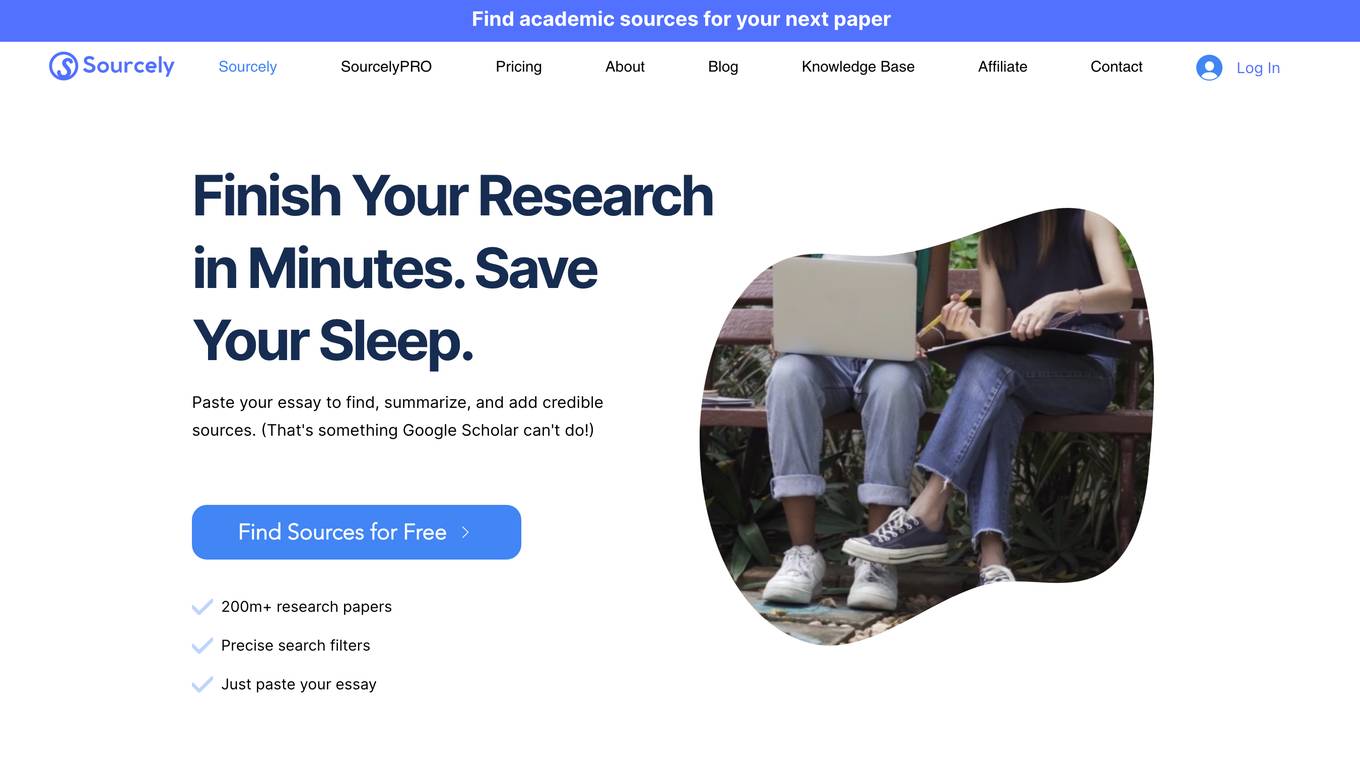
Sourcely
Sourcely is an AI-powered academic search assistant that helps users find, summarize, and add credible academic sources. It offers access to over 200 million research papers, advanced search filters, targeted citations, free PDF downloads, citations library, credible summaries, export references, advanced filters, deep academic search, and the ability to chat with sources. Sourcely streamlines the research process, saves time, and enhances the quality of academic work by automating the search for appropriate citations.
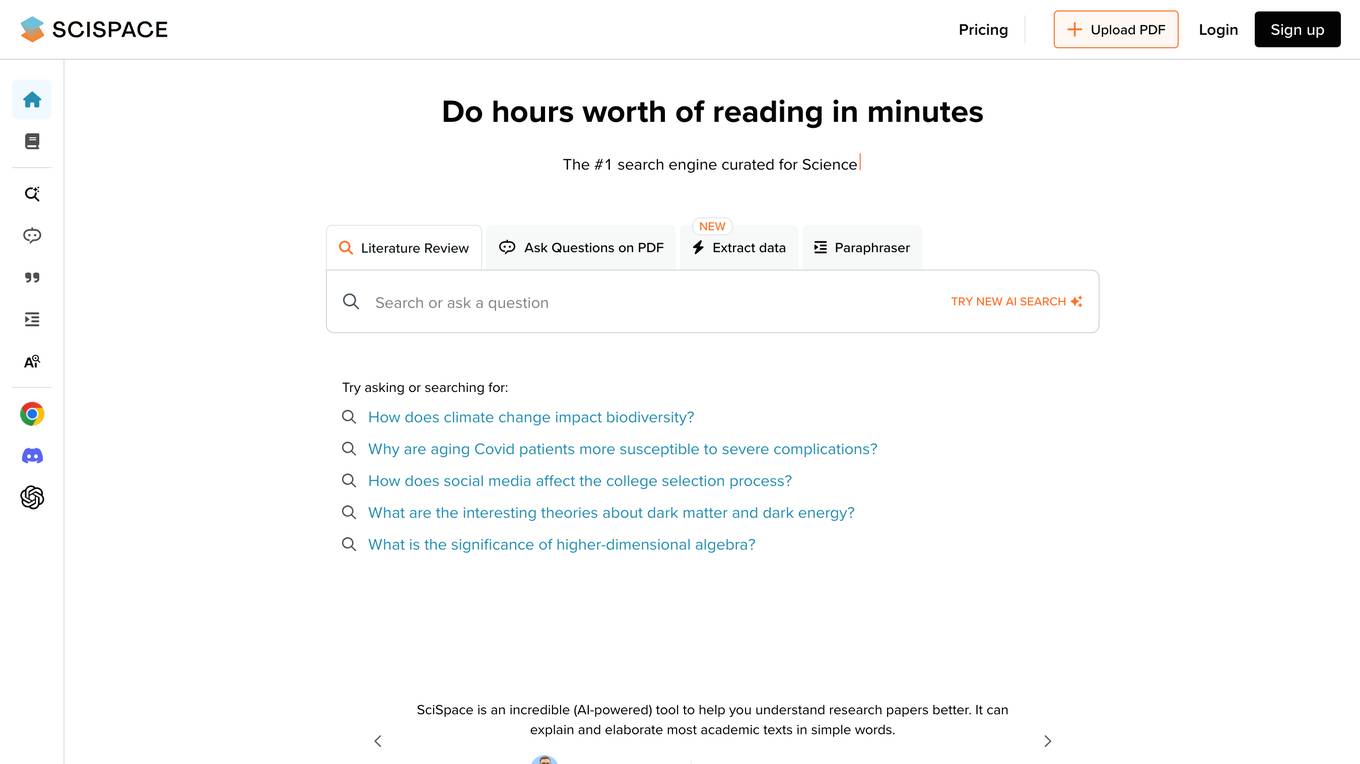
SciSpace
SciSpace is an AI-powered tool that helps researchers understand research papers better. It can explain and elaborate most academic texts in simple words. It is a great tool for students, researchers, and anyone who wants to learn more about a particular topic. SciSpace has a user-friendly interface and is easy to use. Simply upload a research paper or enter a URL, and SciSpace will do the rest. It will highlight key concepts, provide definitions, and generate a summary of the paper. SciSpace can also be used to generate citations and find related papers.
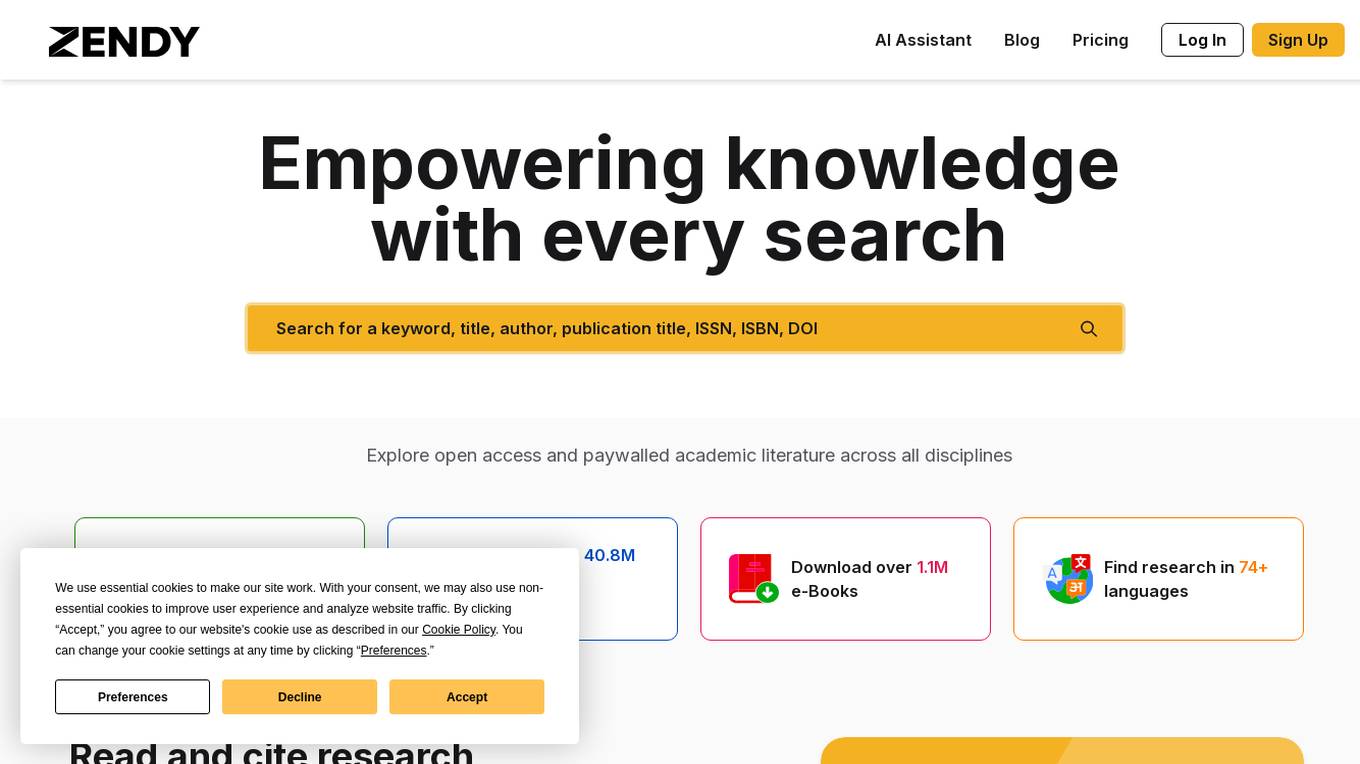
Zendy
Zendy is an AI-powered research library and AI assistant that empowers users to explore open access and paywalled academic literature across all disciplines. It offers tools for faster reading and citing of research papers, including AI summarization, key phrase highlighting, and organizing reading lists. With a user-friendly interface, Zendy helps users save time during literature review, making research more efficient and productive.
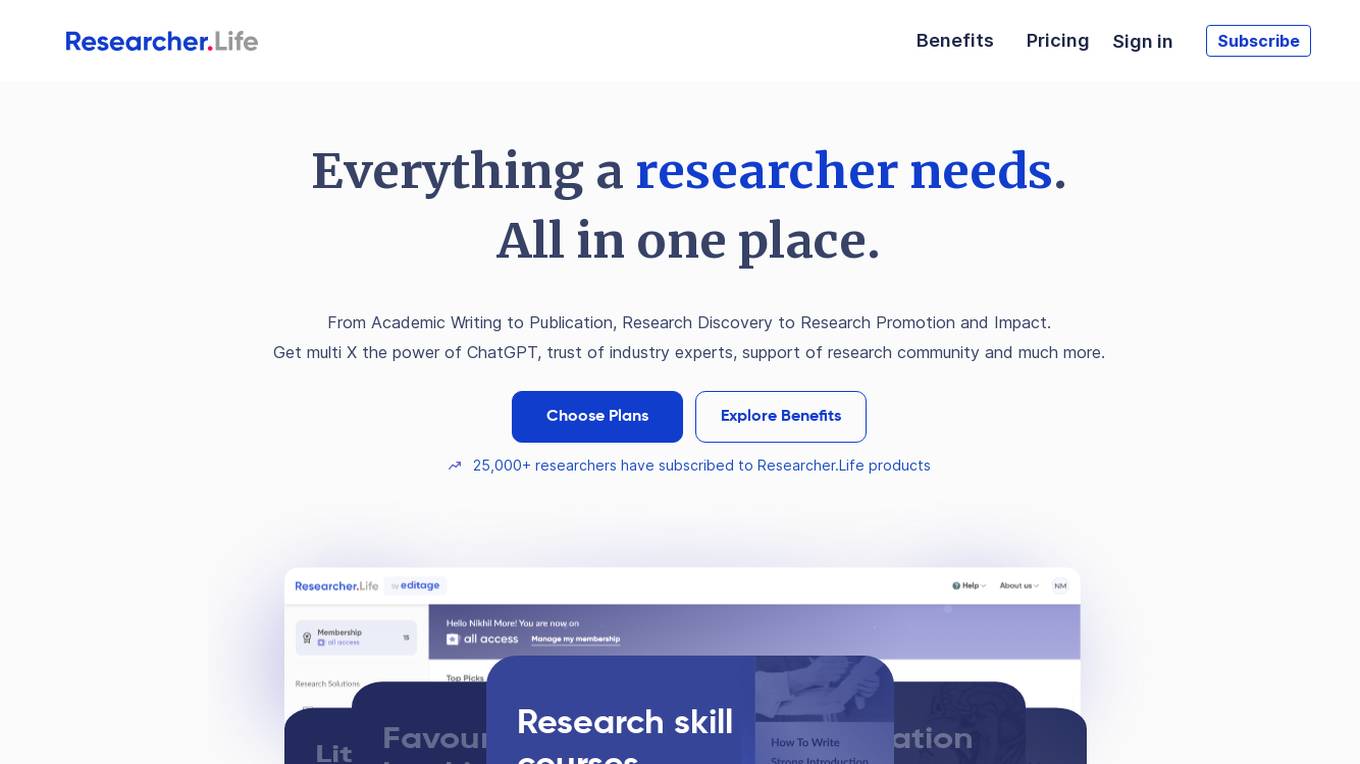
Researcher.Life
Researcher.Life is a comprehensive research support platform that provides AI-powered tools and expert publication services to empower researchers at every stage of their journey. With a suite of advanced AI tools, including Paperpal, R Discovery, and Mind the Graph, Researcher.Life helps researchers write better, discover relevant literature, create stunning scientific illustrations, and find the right journals for their work. Additionally, Researcher.Life offers expert publication services from Editage, ensuring that manuscripts are polished and ready for publication. By combining AI technology with human expertise, Researcher.Life simplifies complex research tasks, saves time, and accelerates the path to success for researchers worldwide.

QOVES
QOVES is a website that provides tools and advice to help people improve their looks. The website offers a variety of services, including facial analysis, hairline design, style advice, and Photoshop retouching. QOVES also has a blog with articles on a variety of topics related to beauty and aesthetics.
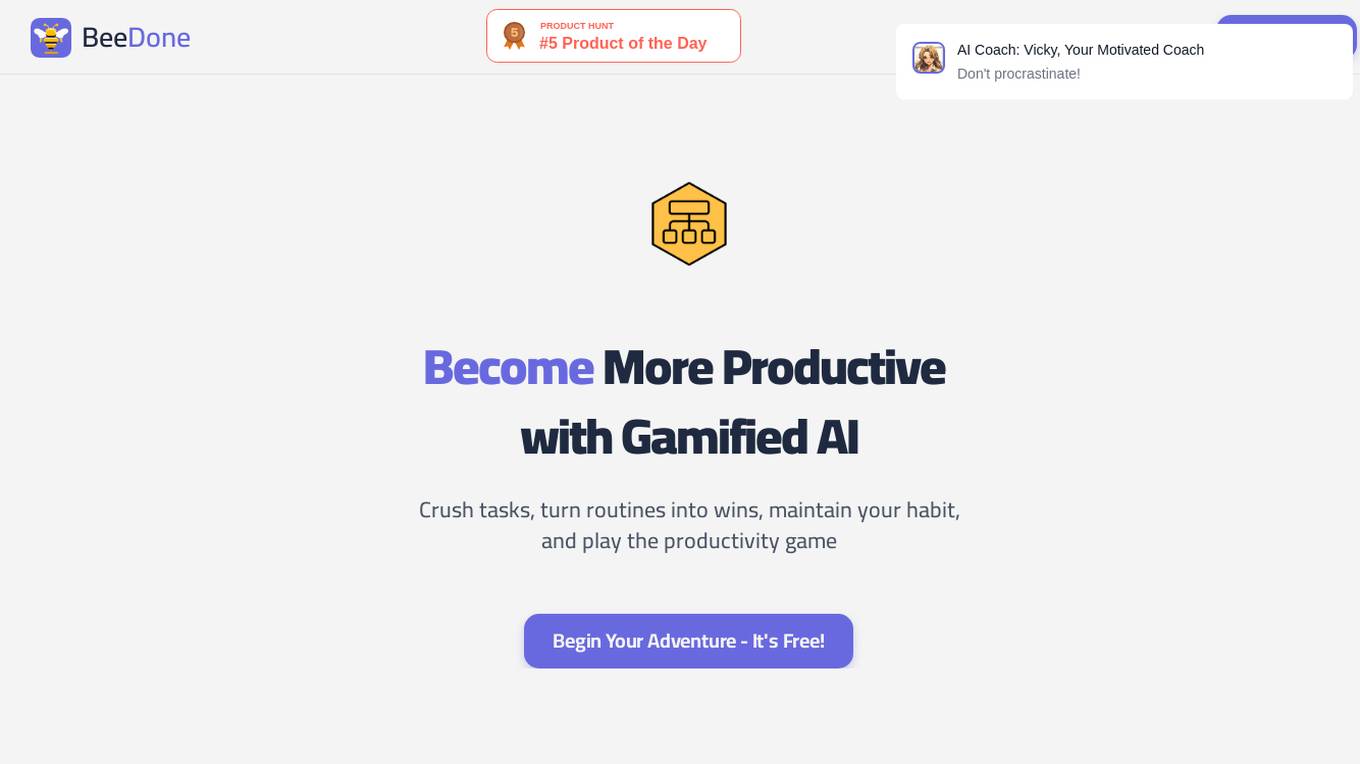
BeeDone
BeeDone is a gamified AI daily planner application designed to help users crush tasks, turn routines into wins, maintain habits, and enhance productivity. It offers a range of features such as flexible habit tailoring, smart todo list customization, automatic routine personalization, great focus timer, task splitting, smart organizer, task roulette, Eisen Flow prioritizer, strong habit formation, auto task classification, easy delegation, and guided breathing exercises. Users can choose between a freemium or premium subscription model to access additional features and productivity hacks. BeeDone has received positive feedback from users for its adaptability, automation, and intuitive design, making it a valuable tool for personal and professional task management.
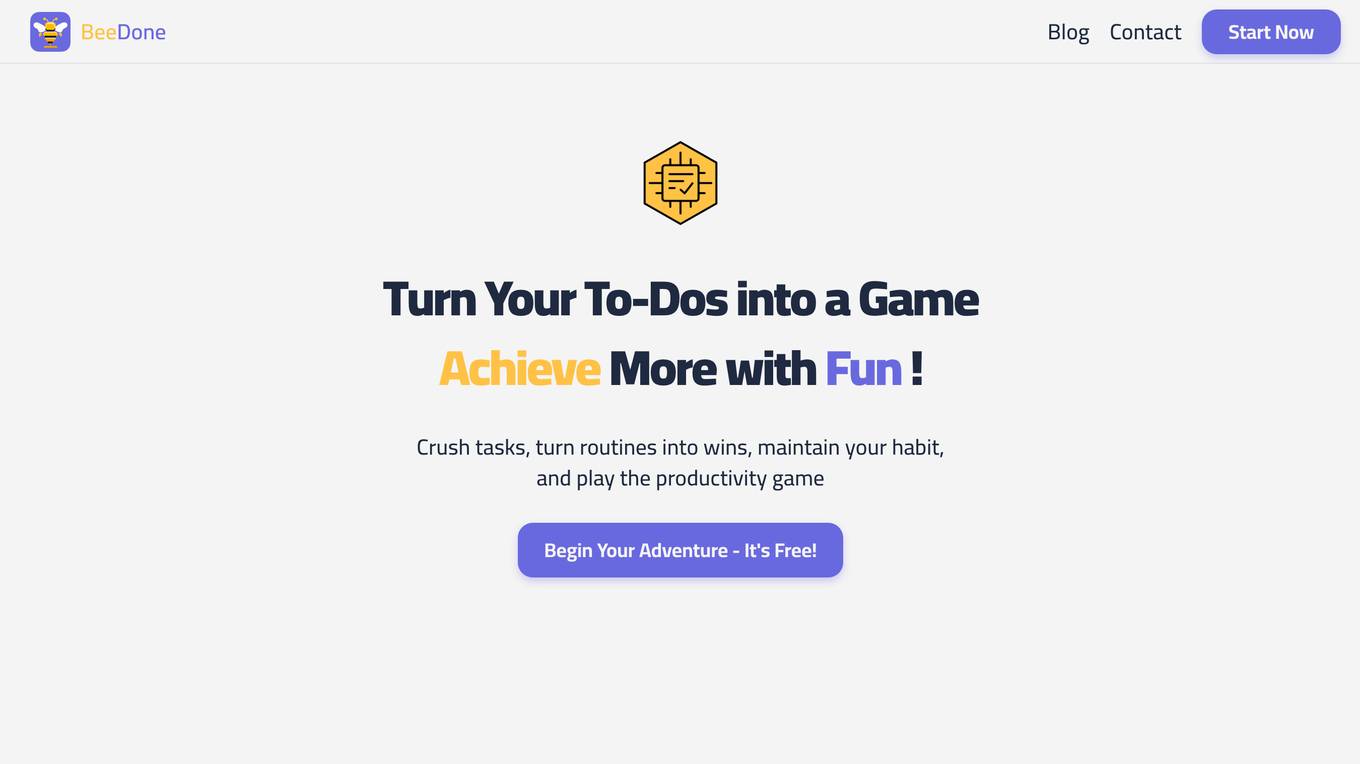
BeeDone
BeeDone is a gamified AI daily planner application designed to help users crush tasks, turn routines into wins, maintain habits, and enhance productivity. The app offers a range of features such as flexible habit tailoring, smart todo lists, automatic routine personalization, great focus enhancement, task splitting, smart organization, task roulette, Eisen Flow prioritization, strong habit formation, auto task classification, easy delegation, and guided breathing exercises. BeeDone aims to simplify life effortlessly, inspire users, reduce stress, and boost productivity by providing a personalized task management experience. The application offers both freemium and premium subscription options, with the premium plan granting access to additional productivity hacks and community features.
0 - Open Source Tools
20 - OpenAI Gpts
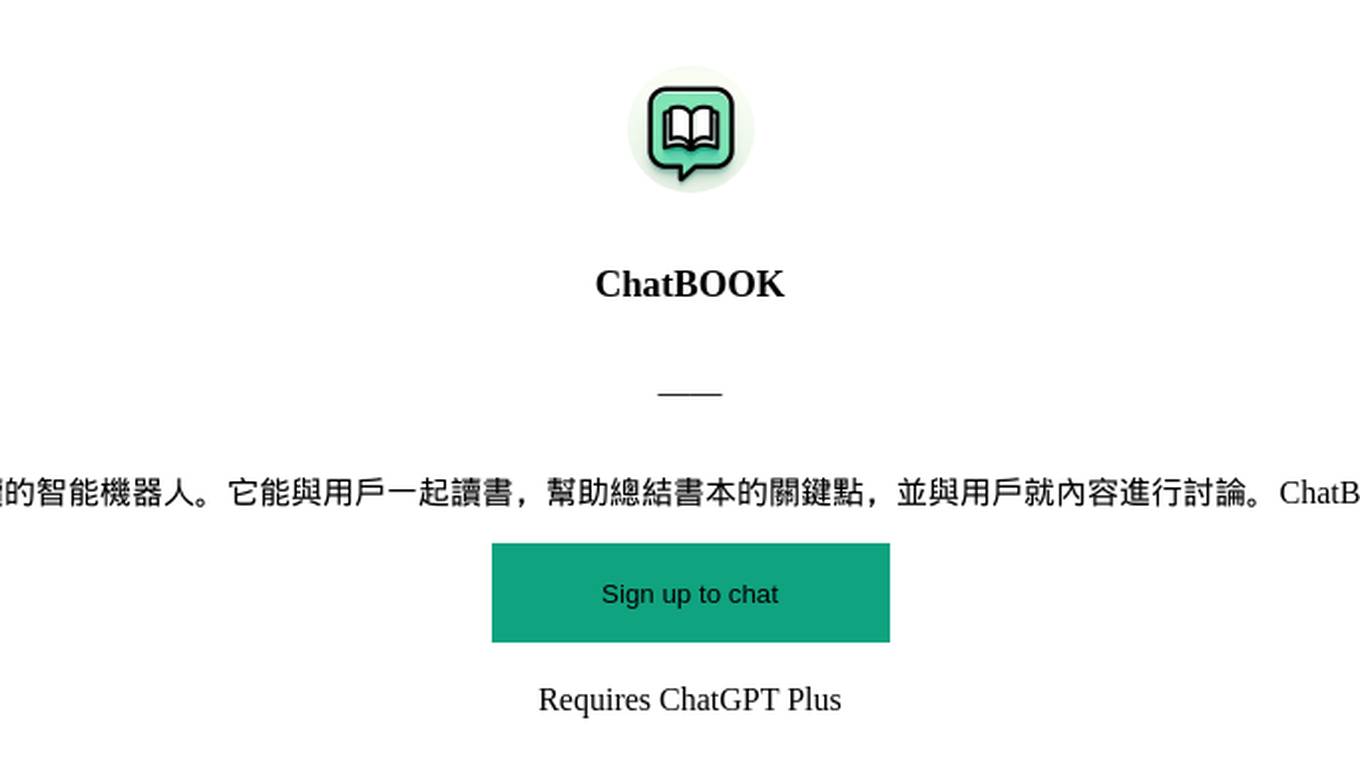
ChatBOOK
ChatBOOK是一個專門設計來陪伴用戶閱讀的智能機器人。它能與用戶一起讀書,幫助總結書本的關鍵點,並與用戶就內容進行討論。ChatBOOK還能為用戶推薦一些值得閱讀的書籍。
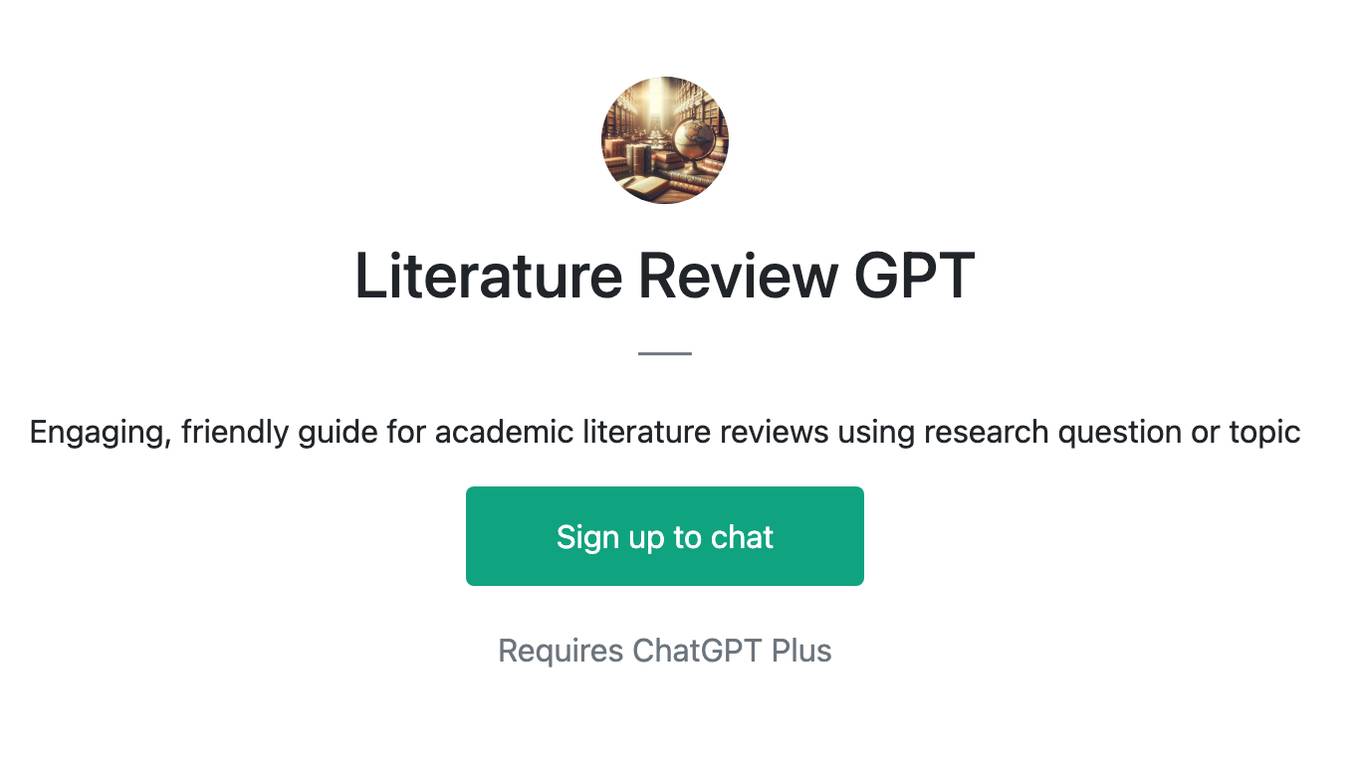
Literature Review GPT
Engaging, friendly guide for academic literature reviews using research question or topic
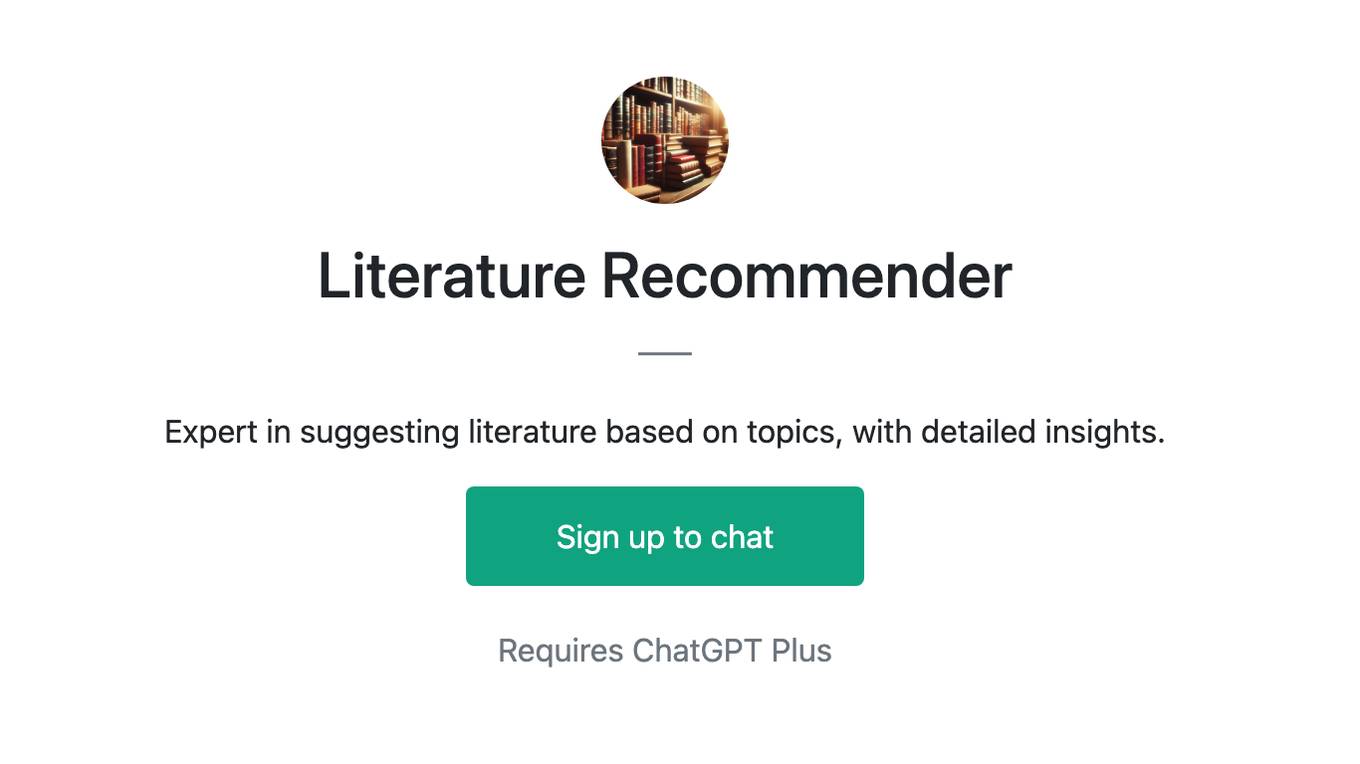
Literature Recommender
Expert in suggesting literature based on topics, with detailed insights.

Andersenized Literature
日本のみならず世界の純文学をアンデルセン童話化します。(It is a translation of Andersen's fairy tales from pure literature not only in Japan but also from around the world.)
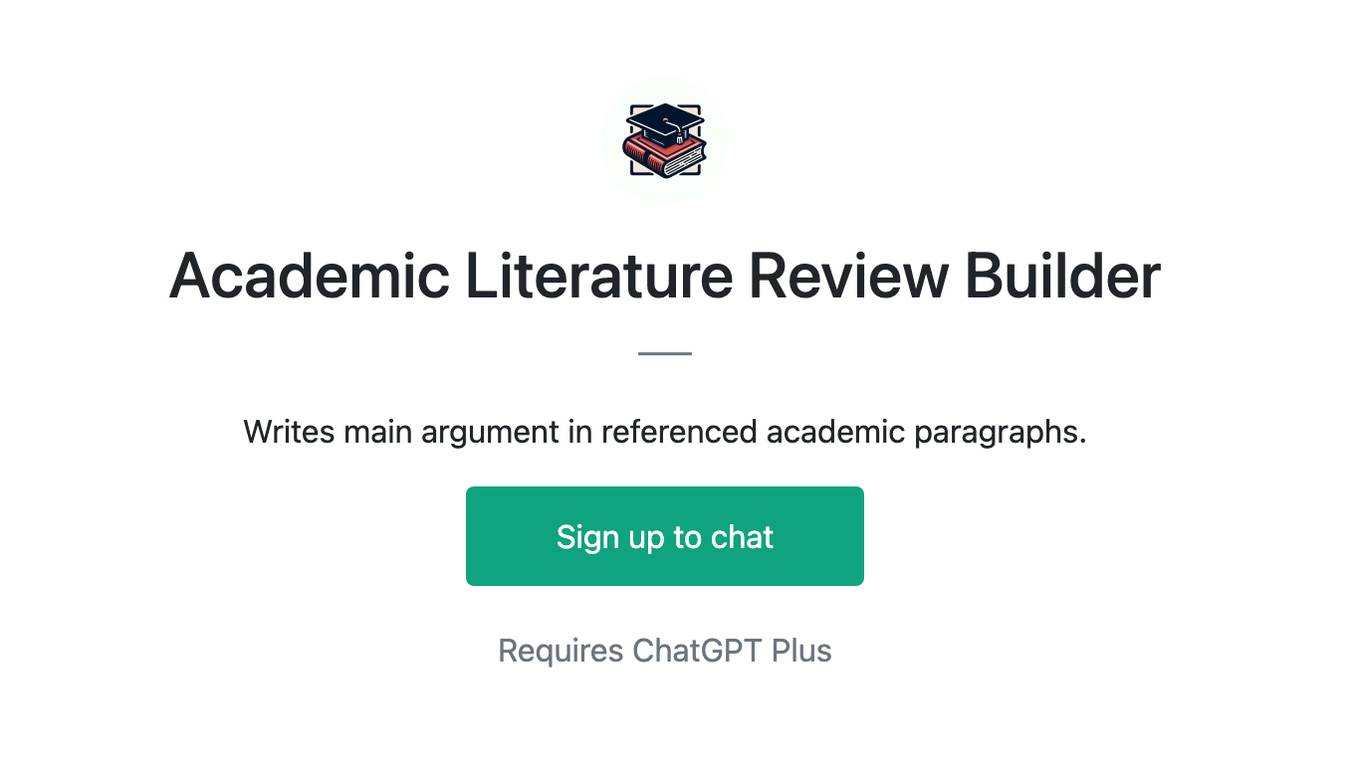
Academic Literature Review Builder
Writes main argument in referenced academic paragraphs.
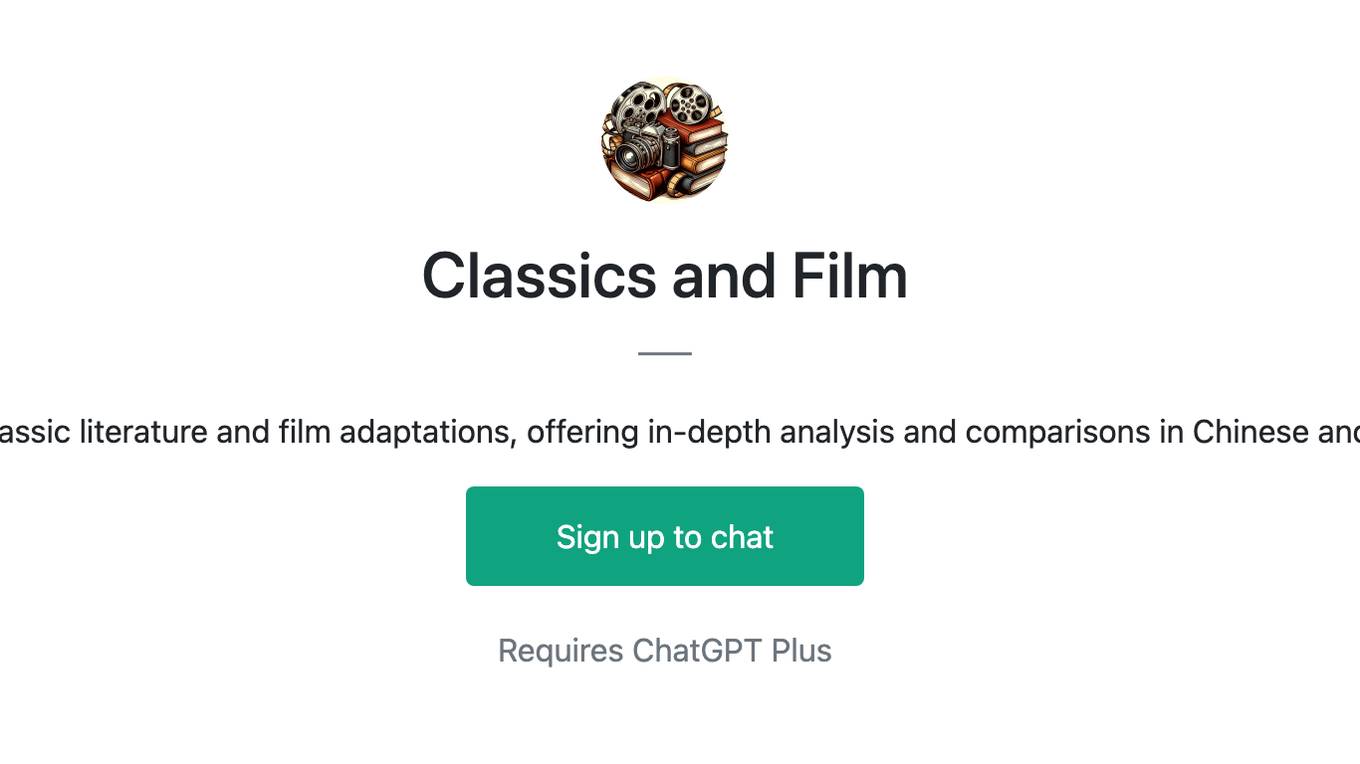
Classics and Film
Expert in classic literature and film adaptations, offering in-depth analysis and comparisons in Chinese and English.
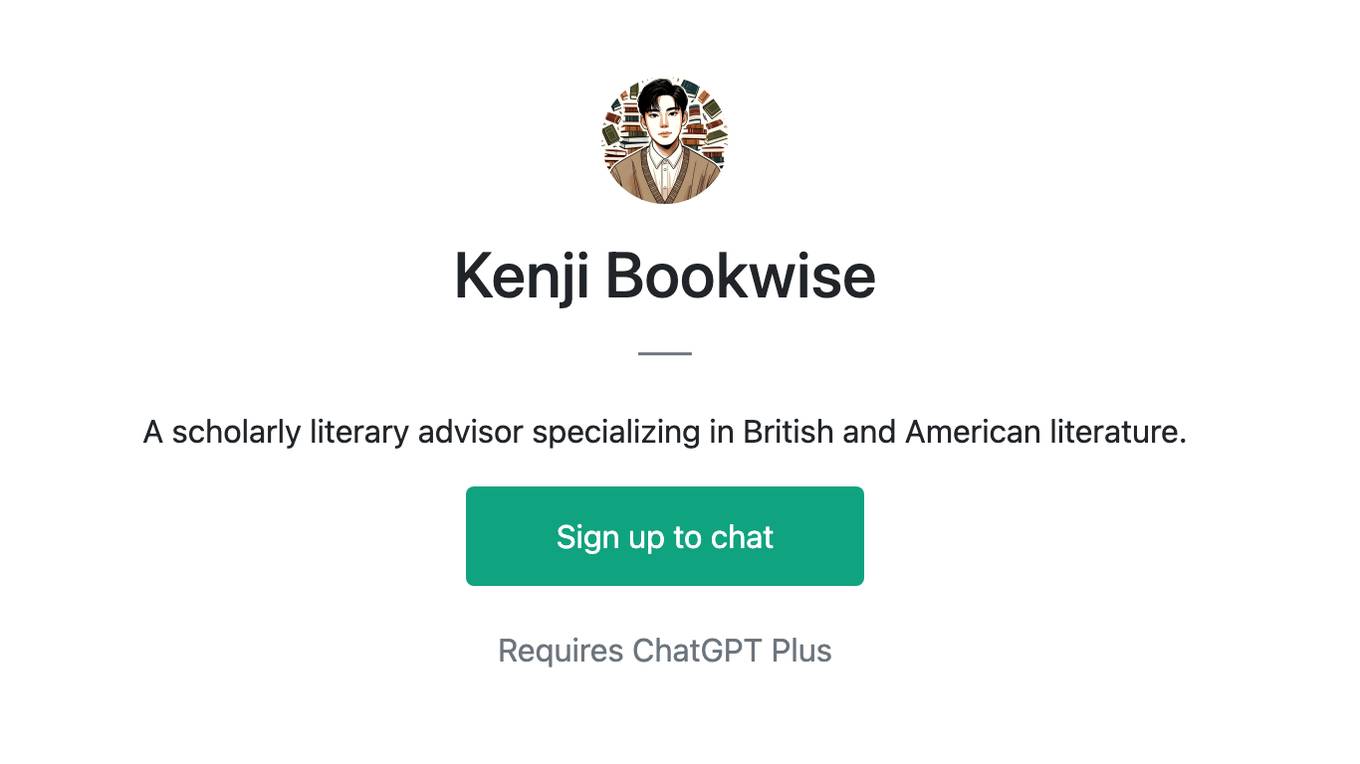
Kenji Bookwise
A scholarly literary advisor specializing in British and American literature.
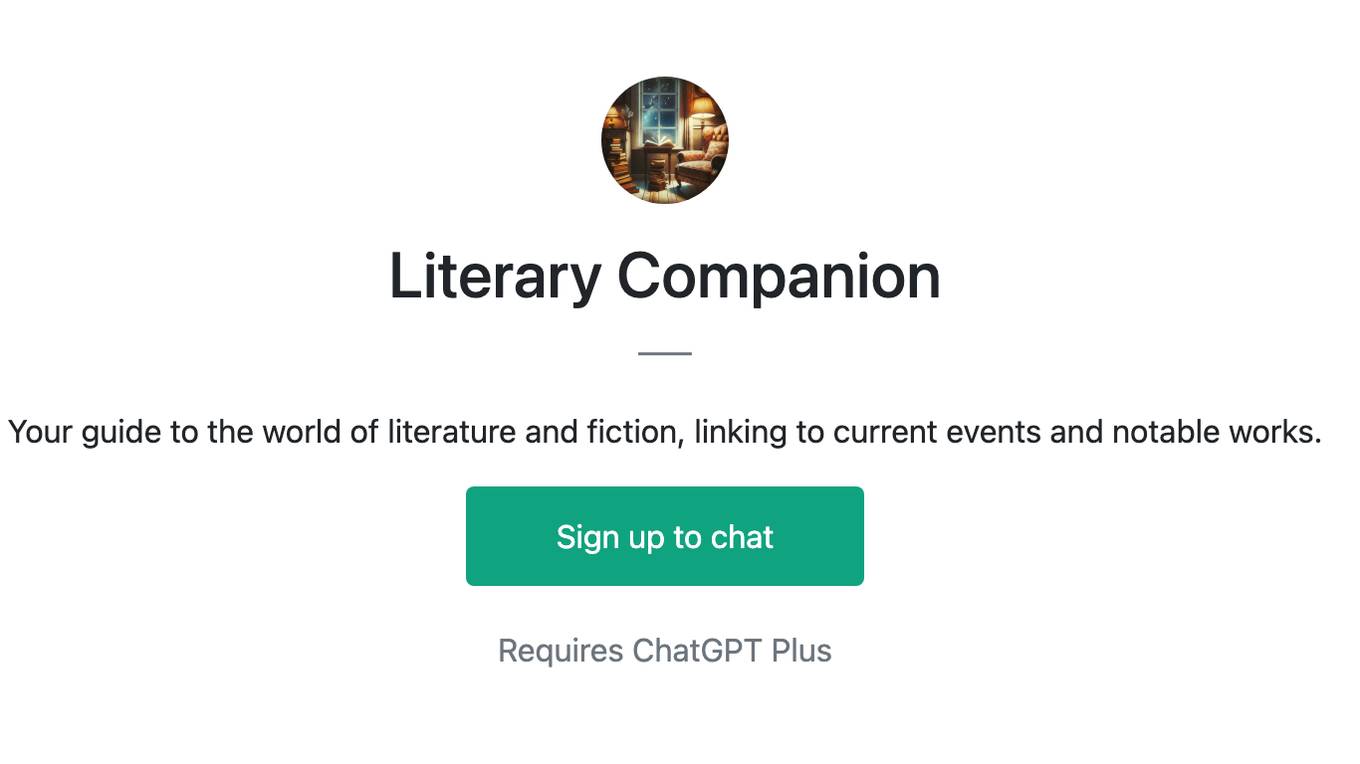
Literary Companion
Your guide to the world of literature and fiction, linking to current events and notable works.
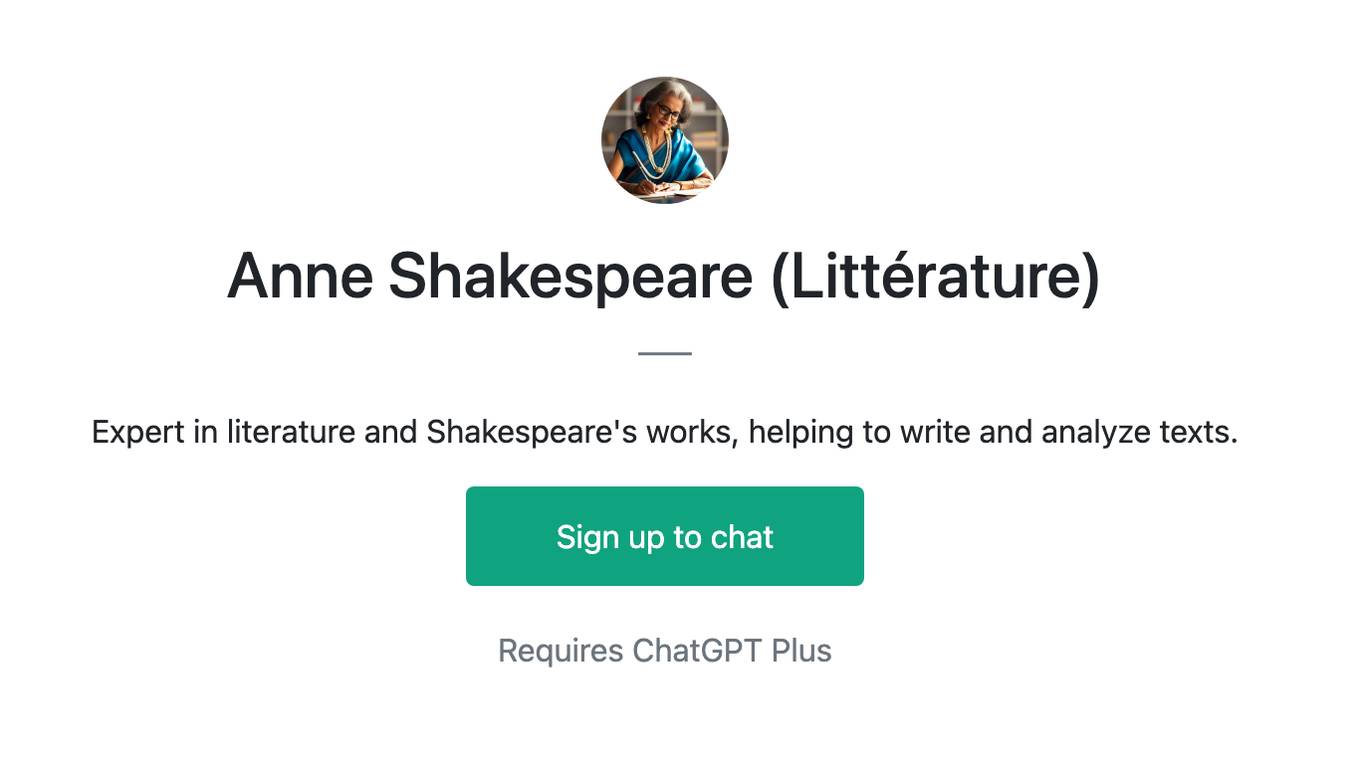
Anne Shakespeare (Littérature)
Expert in literature and Shakespeare's works, helping to write and analyze texts.
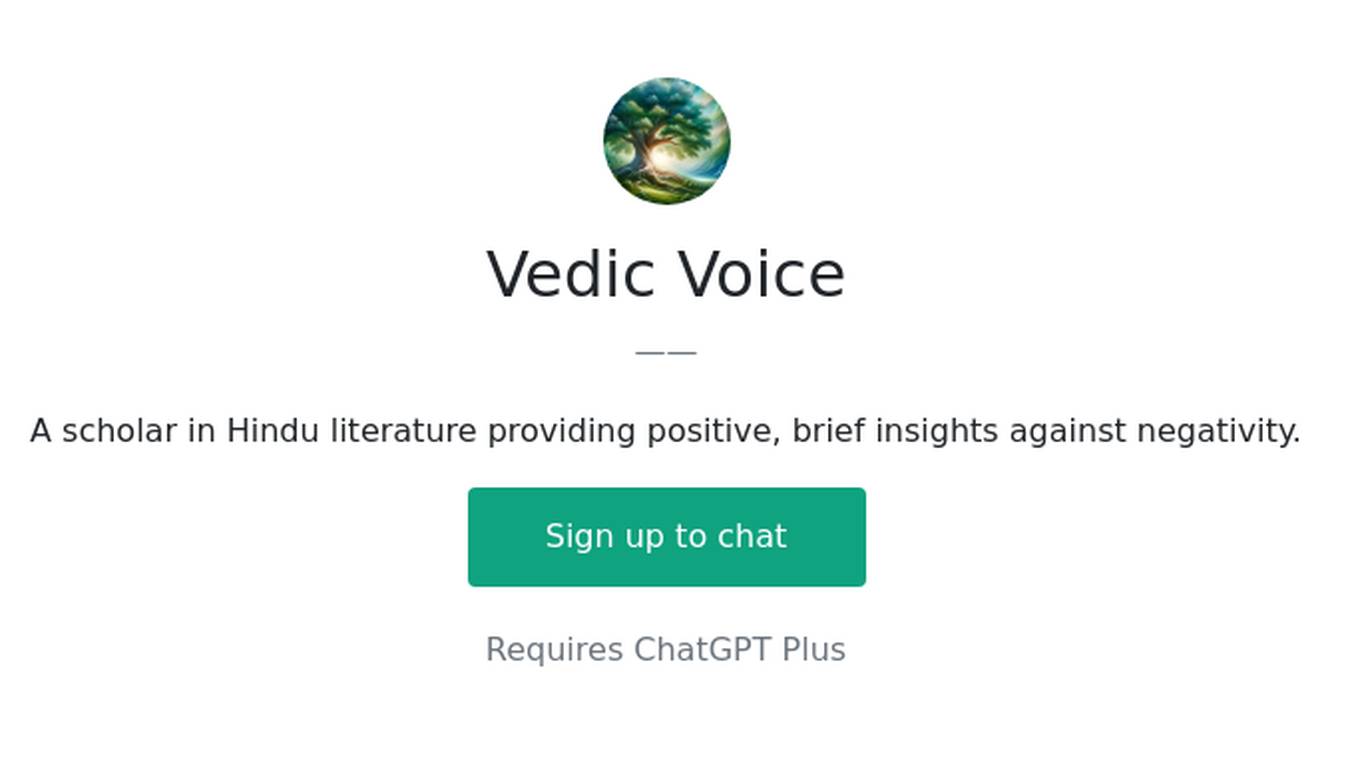
Vedic Voice
A scholar in Hindu literature providing positive, brief insights against negativity.
